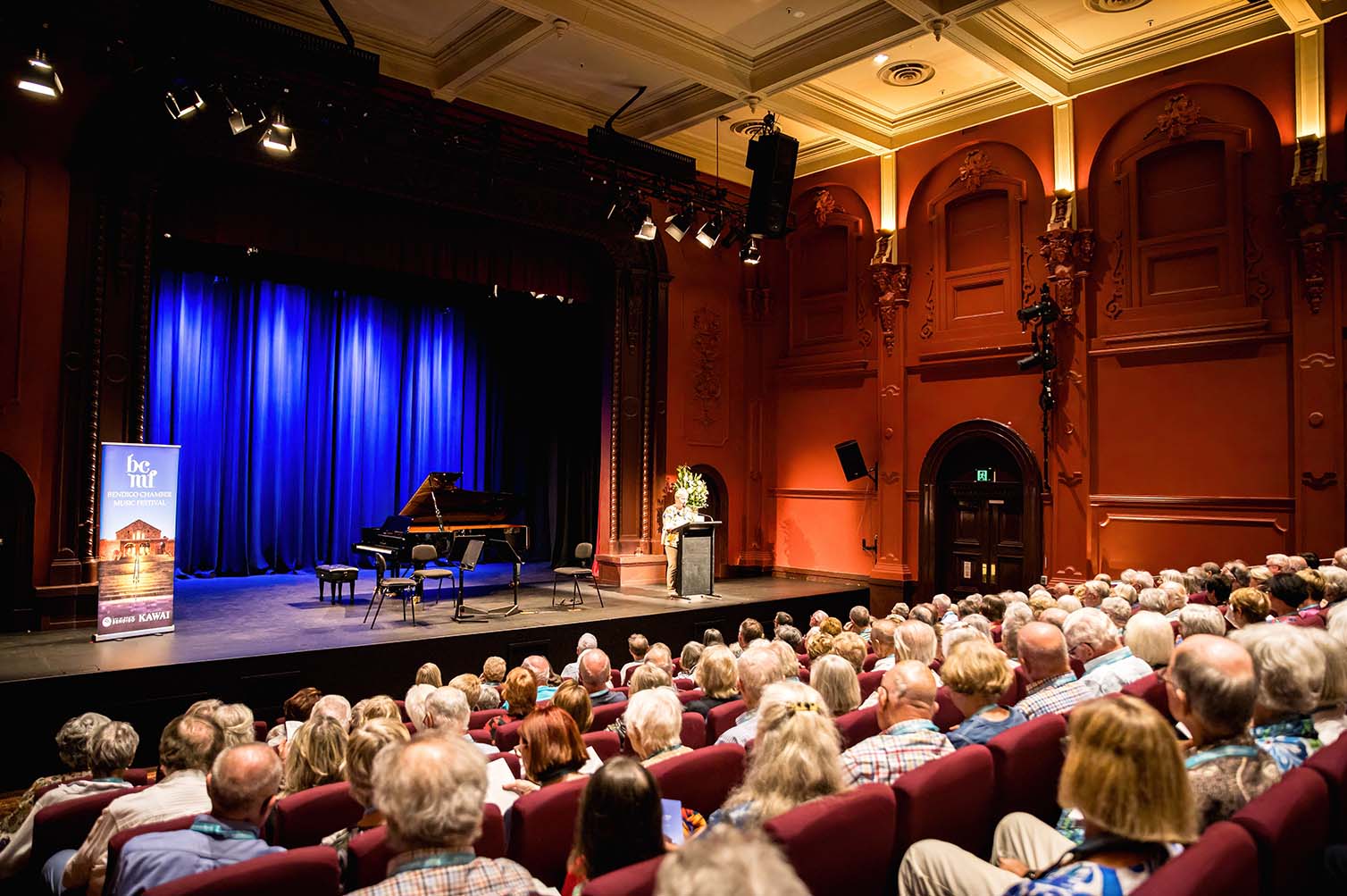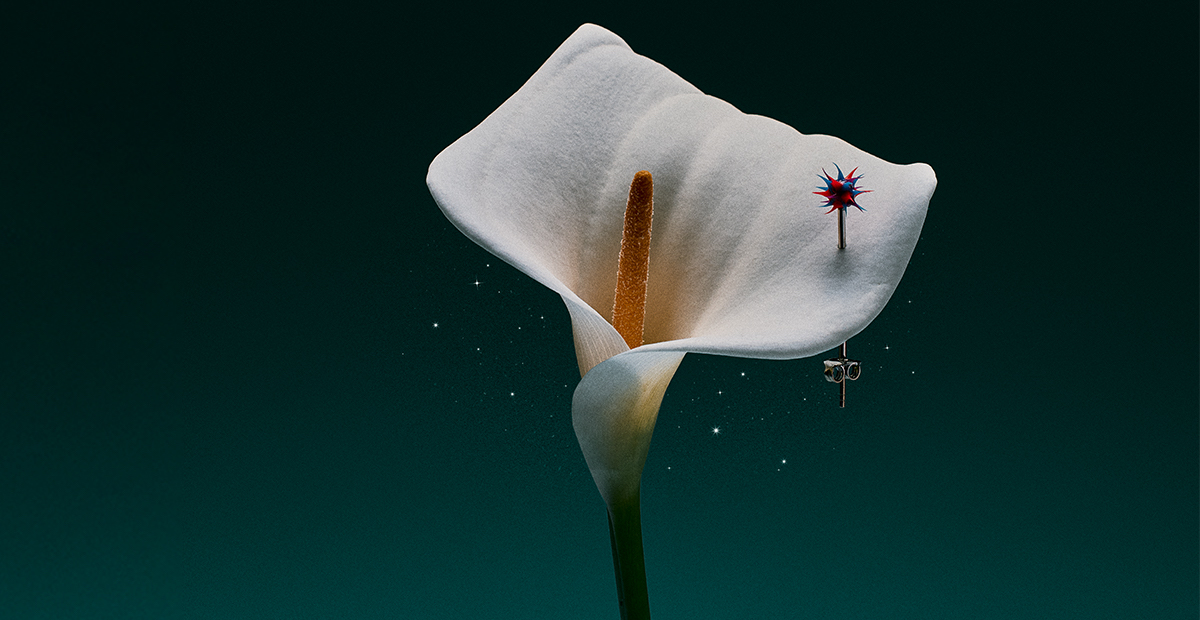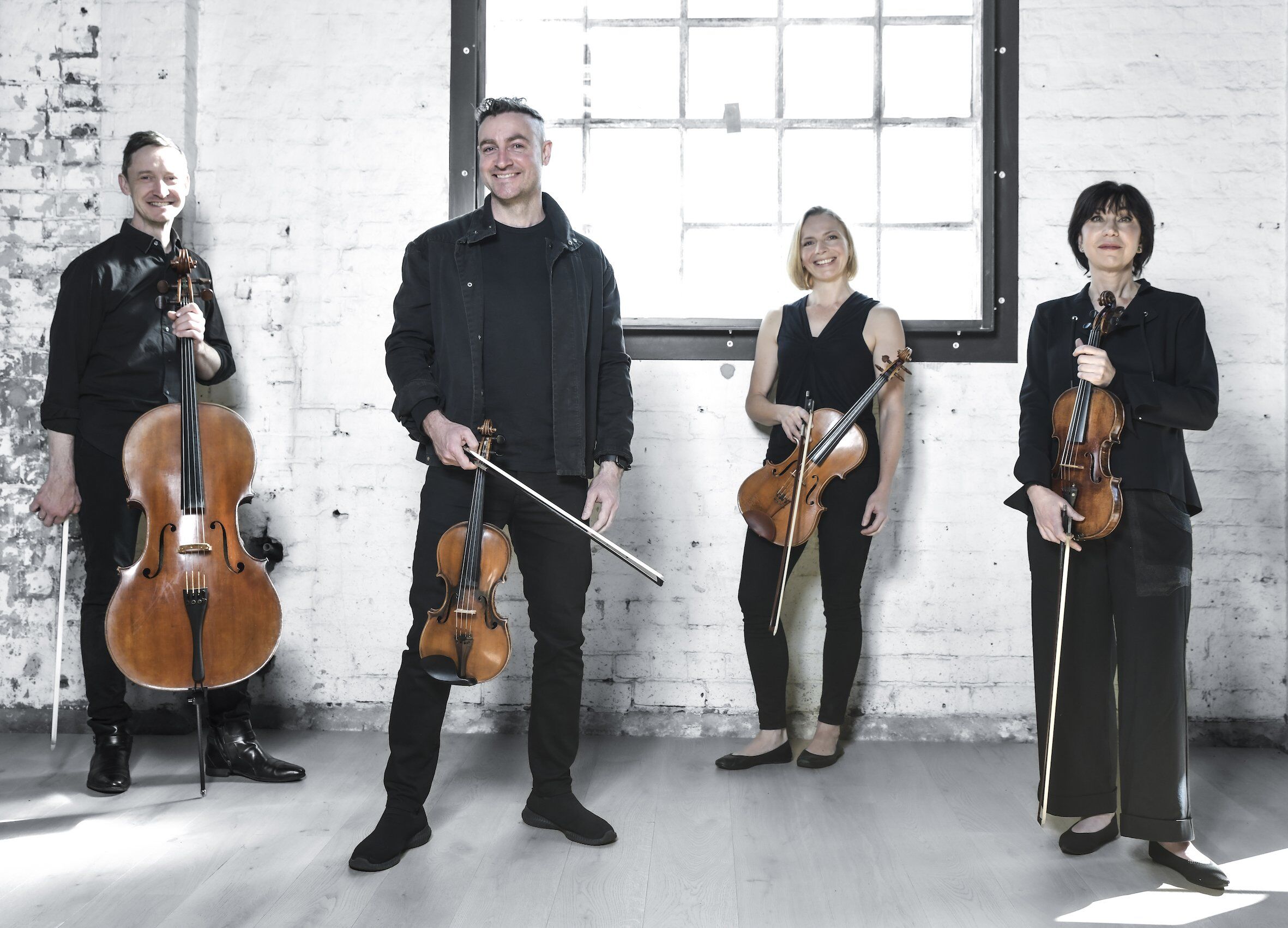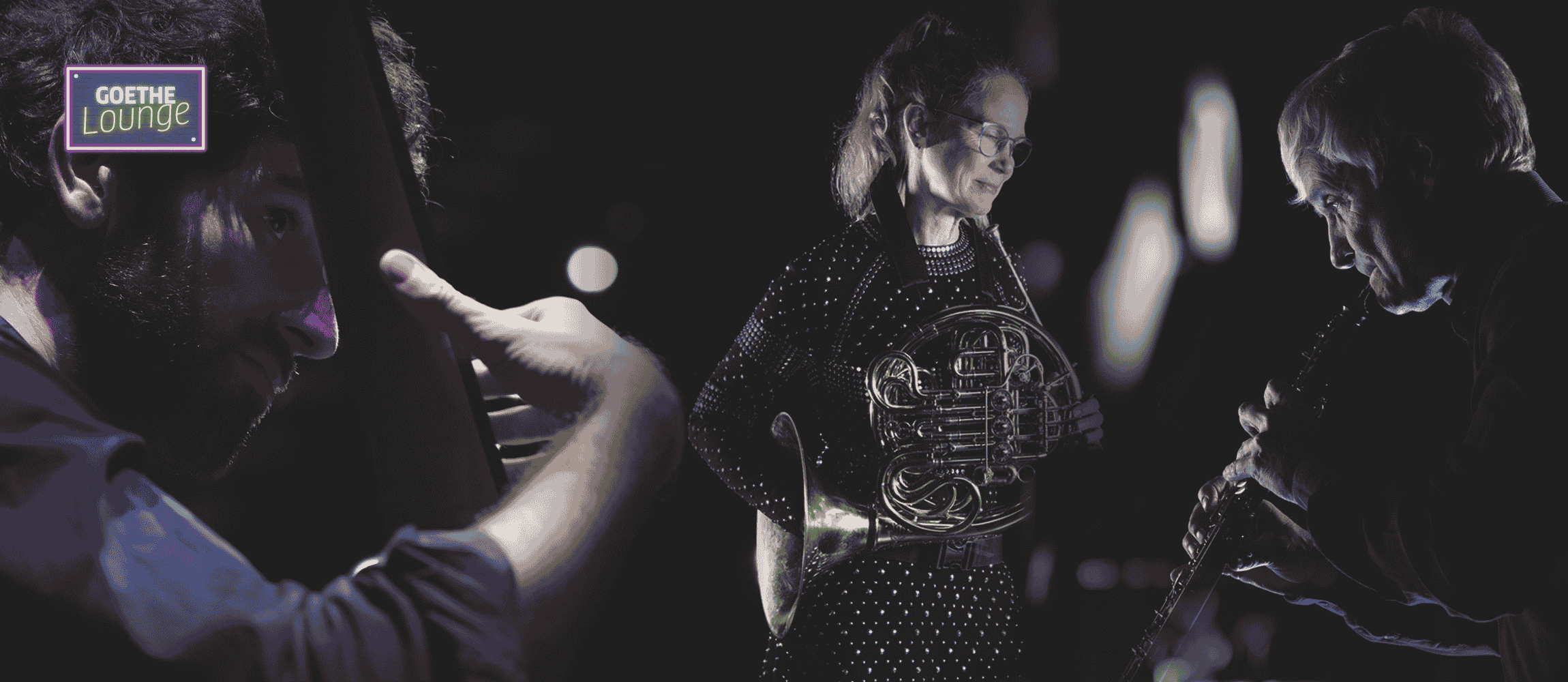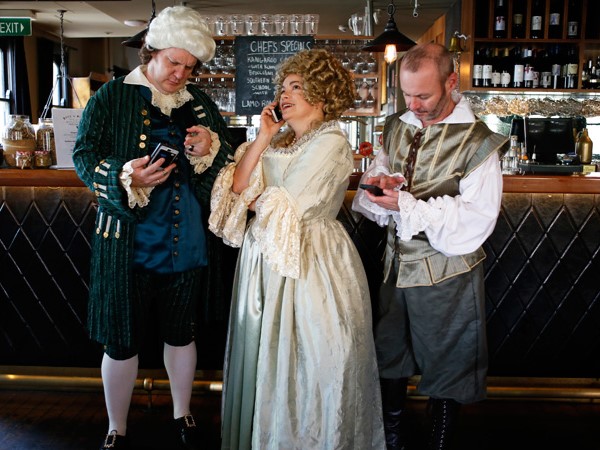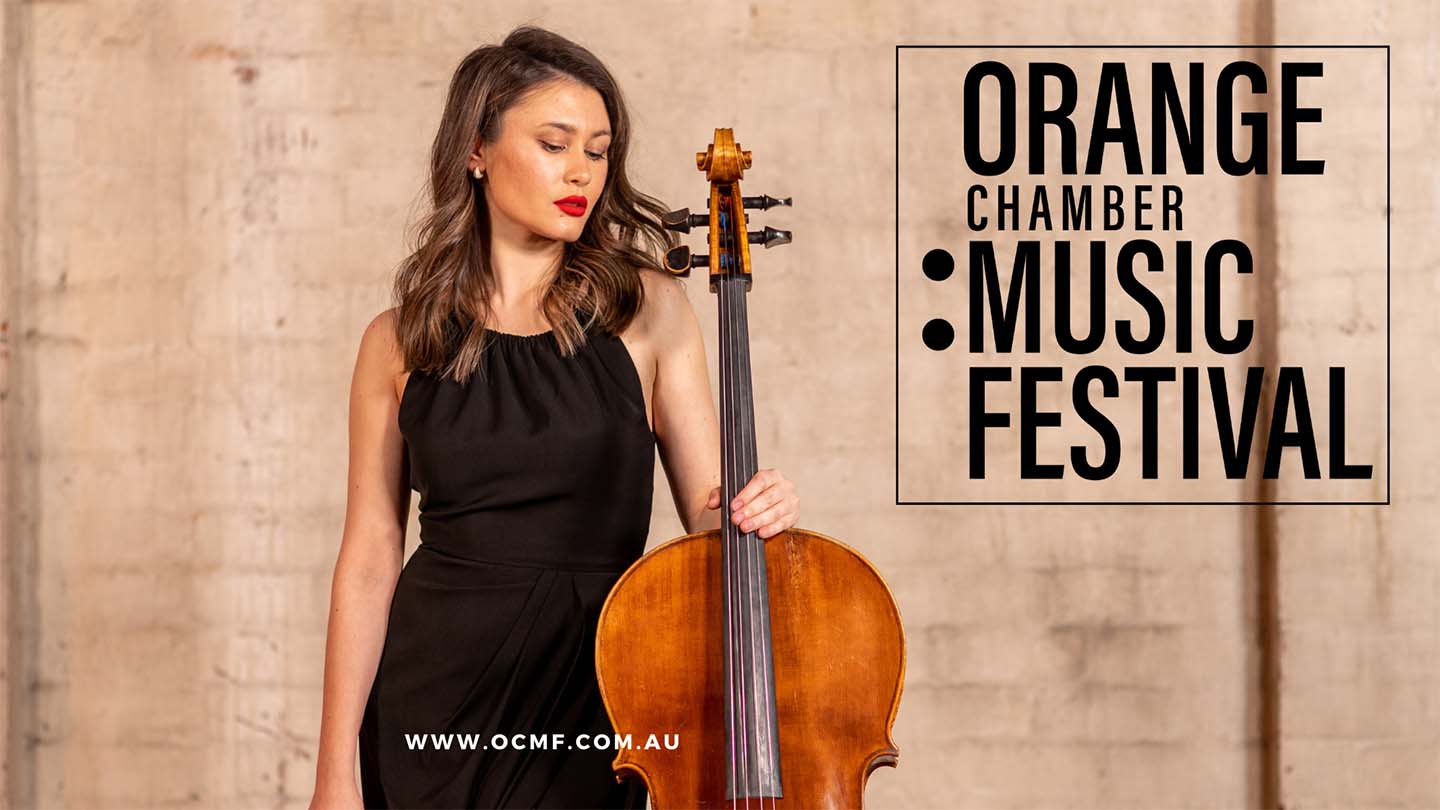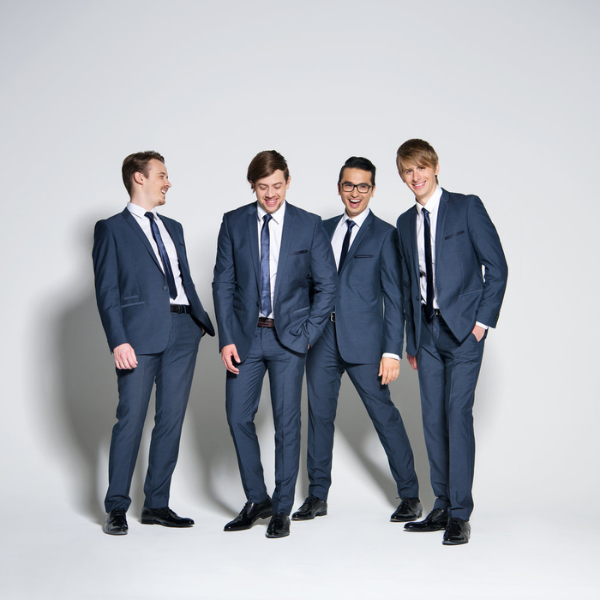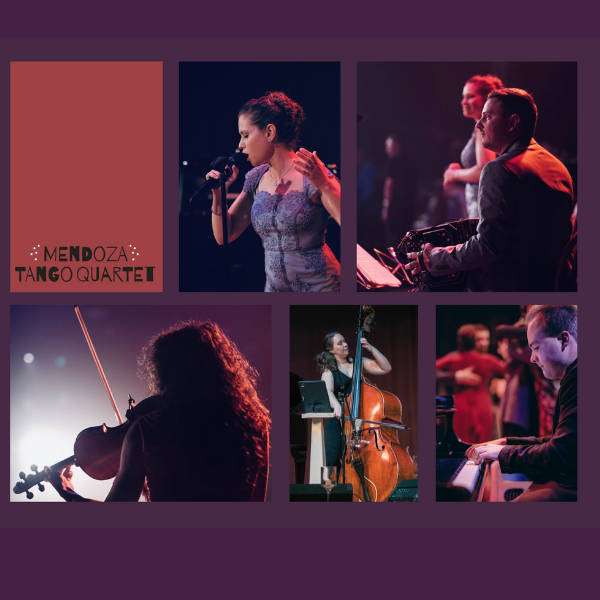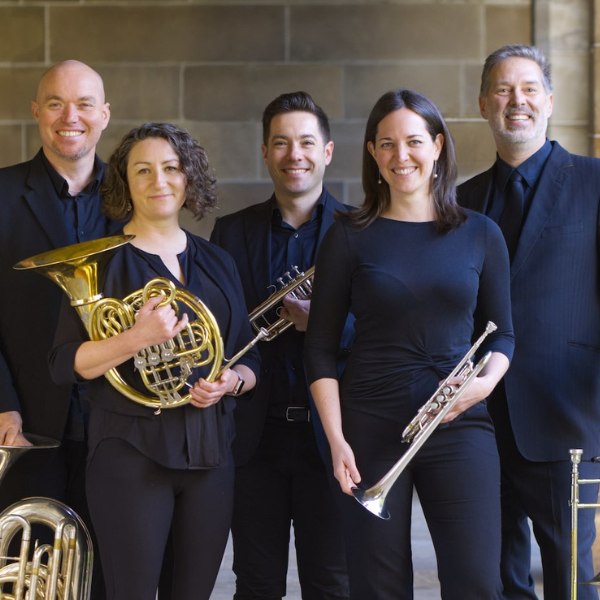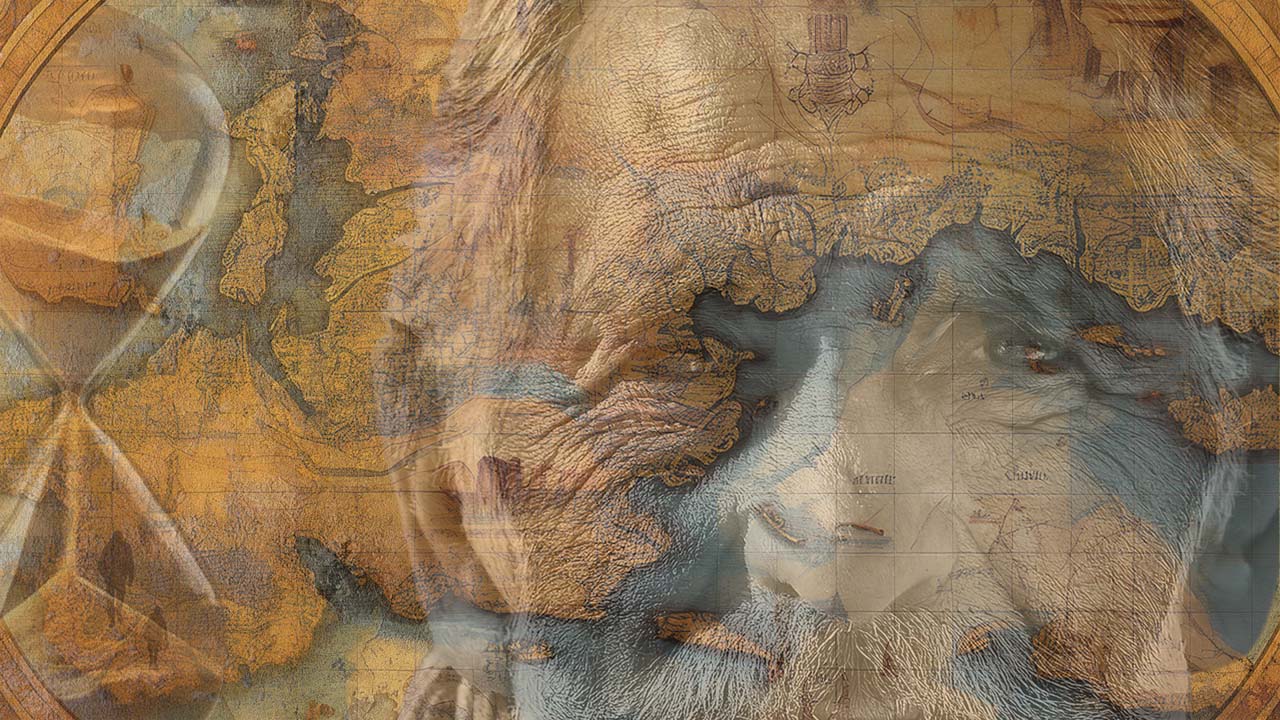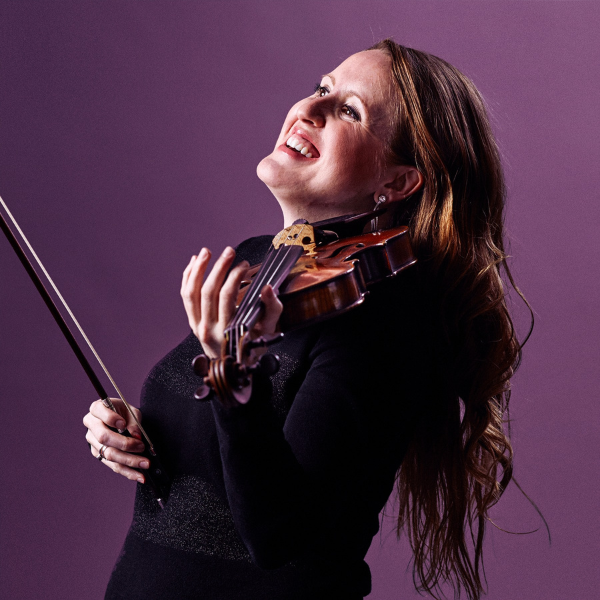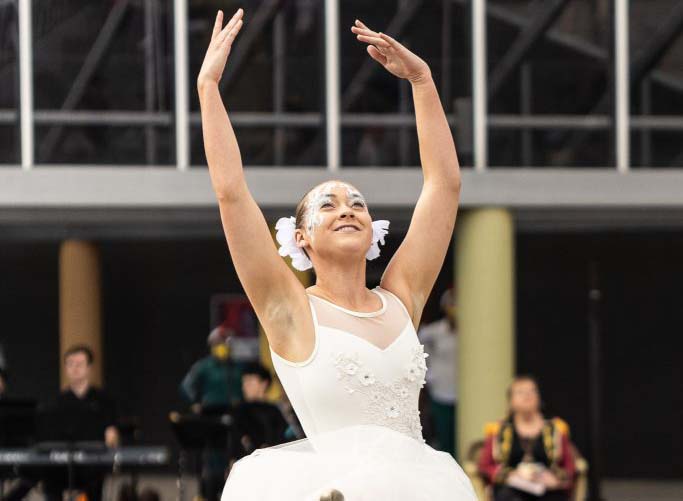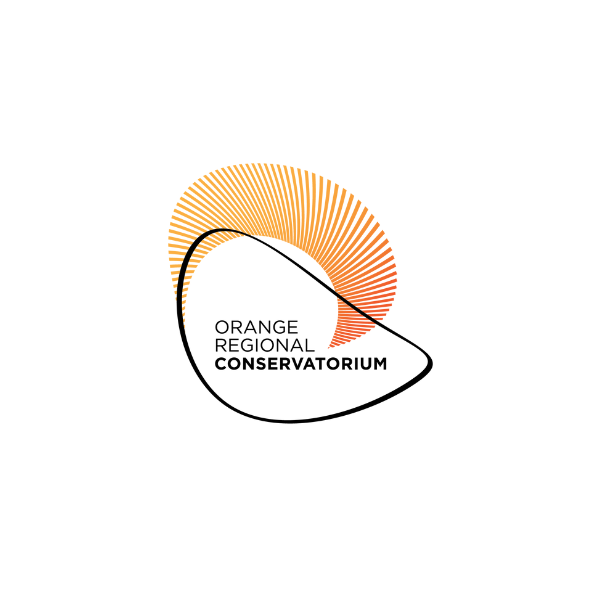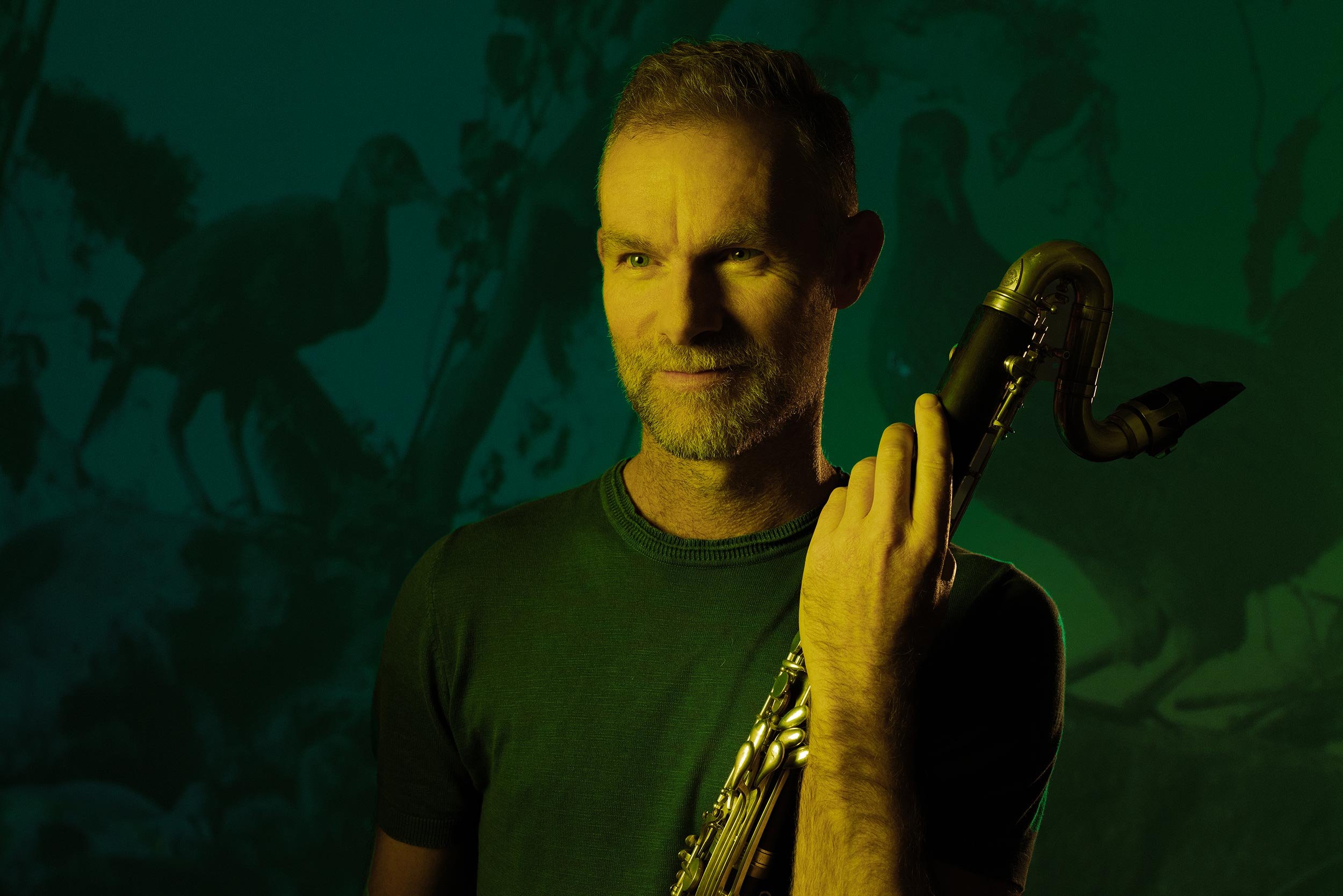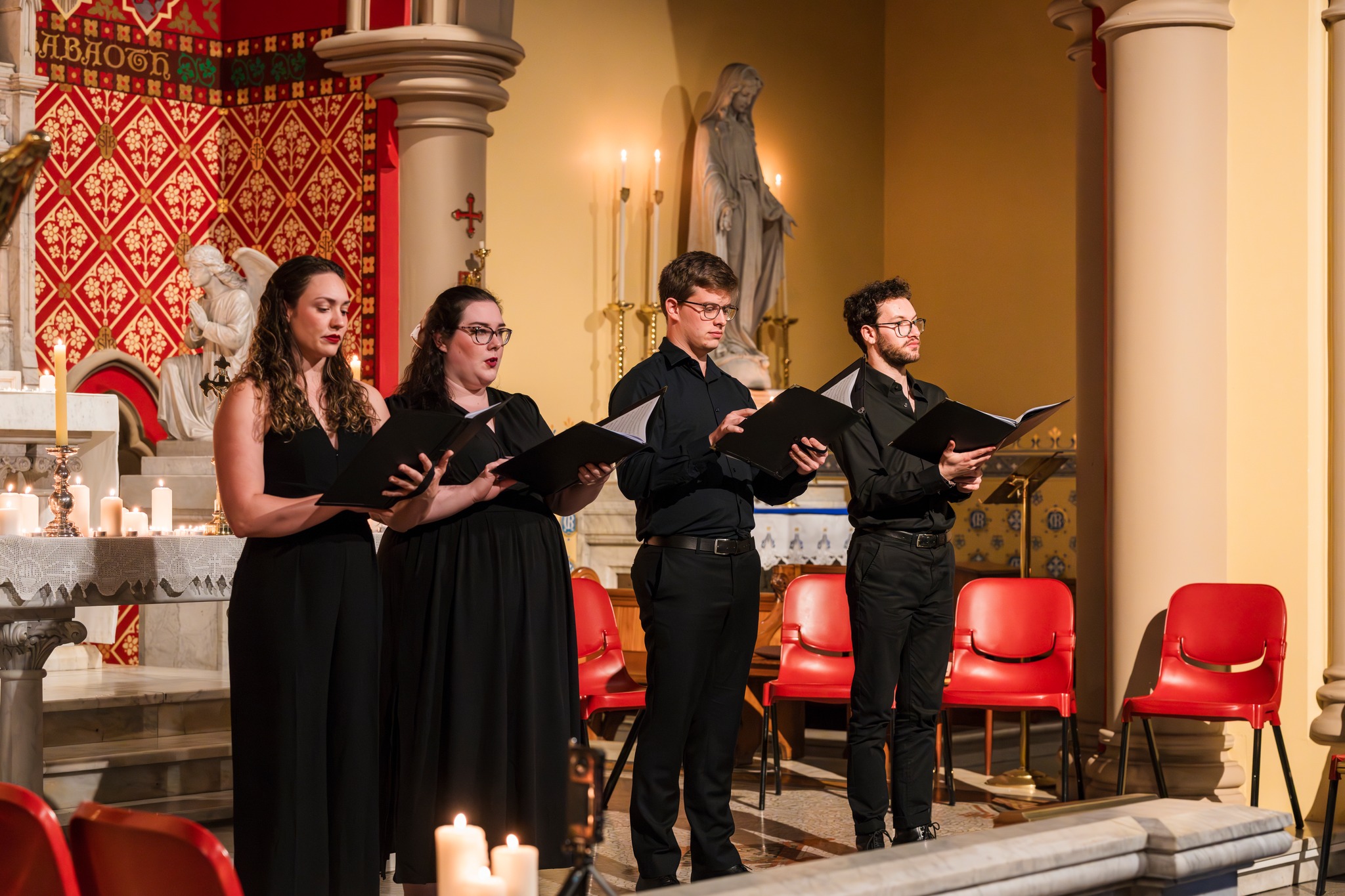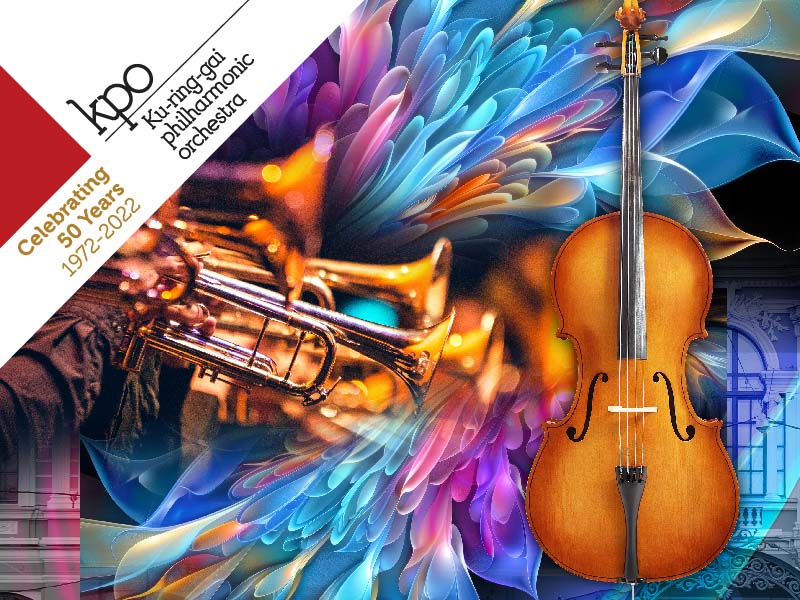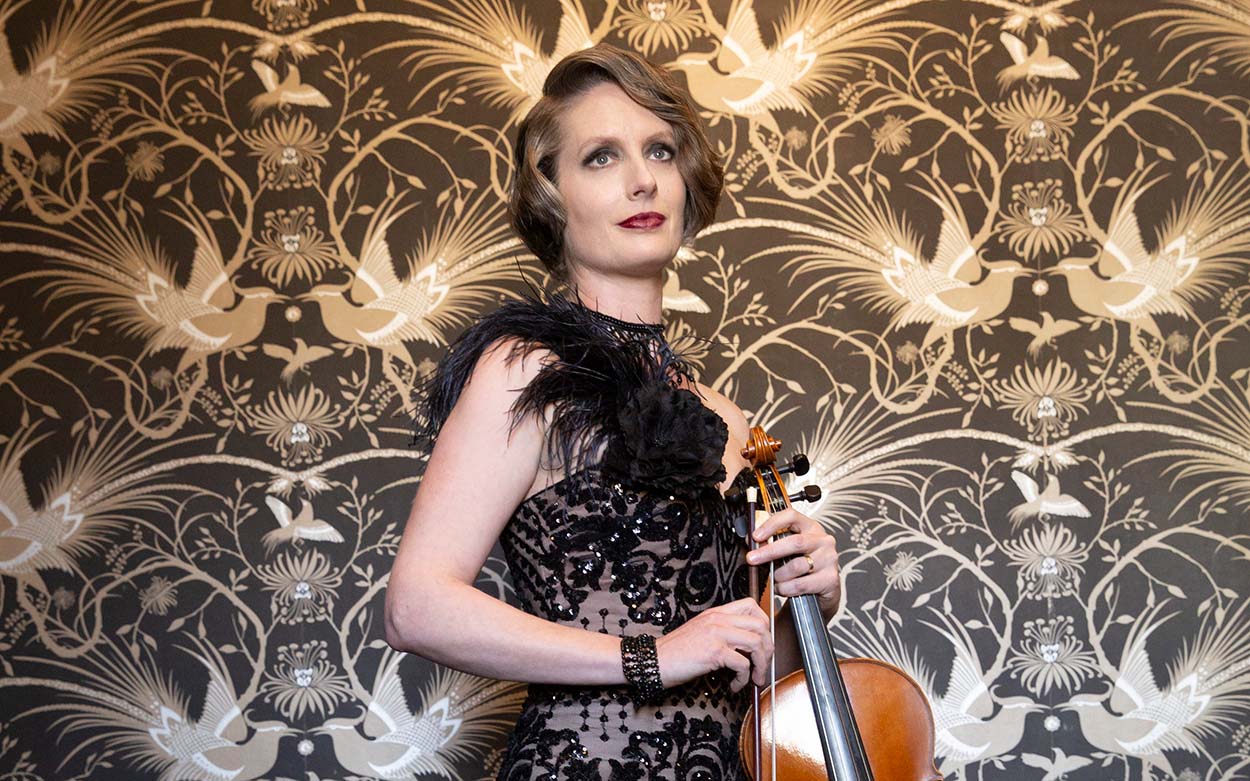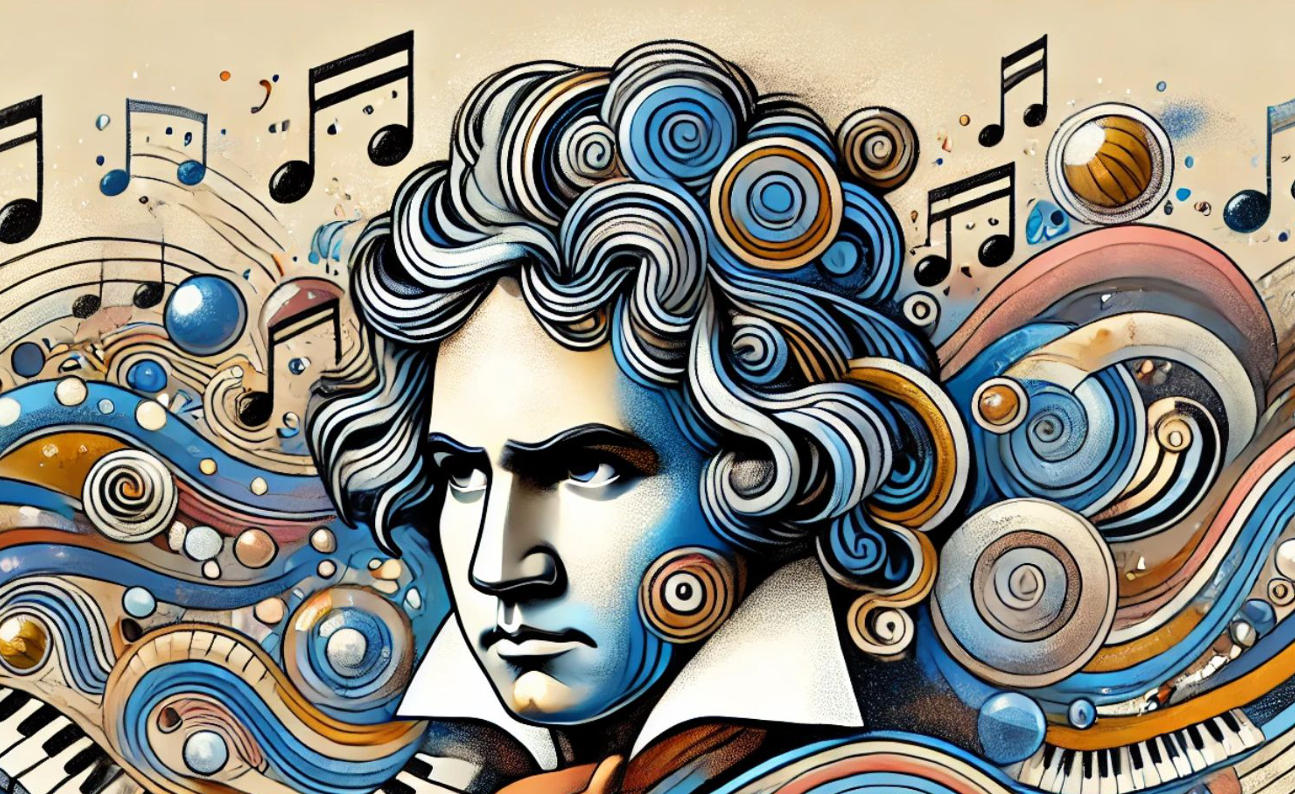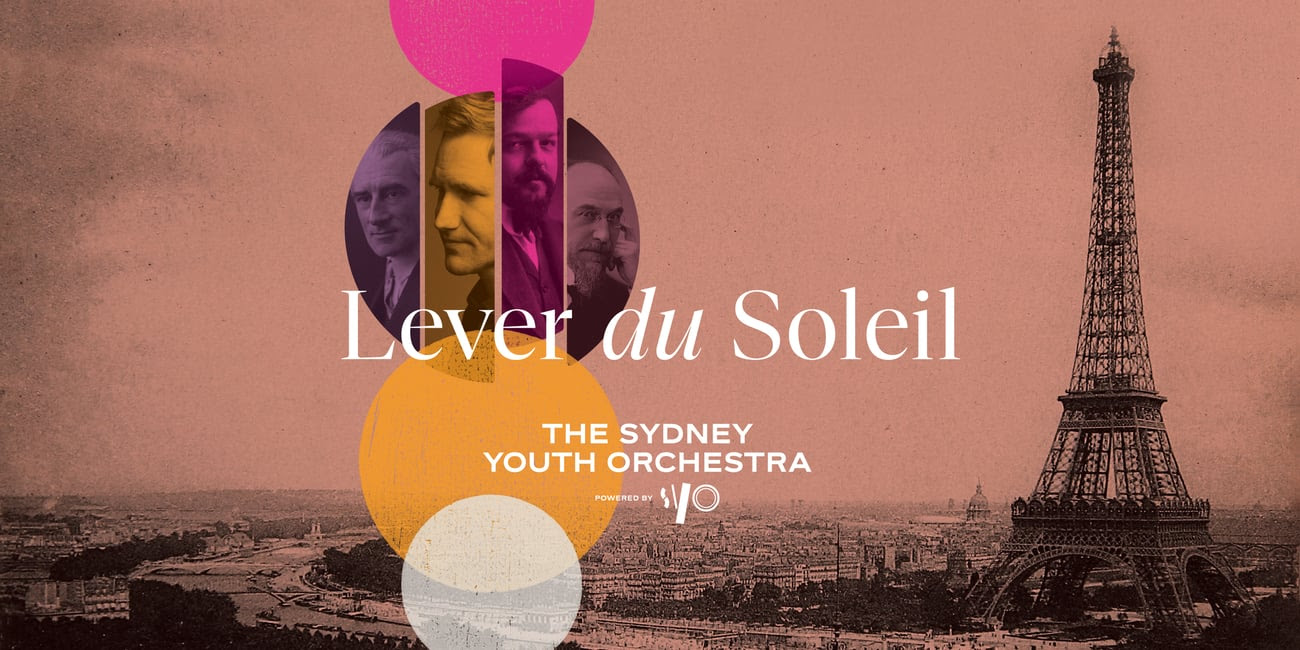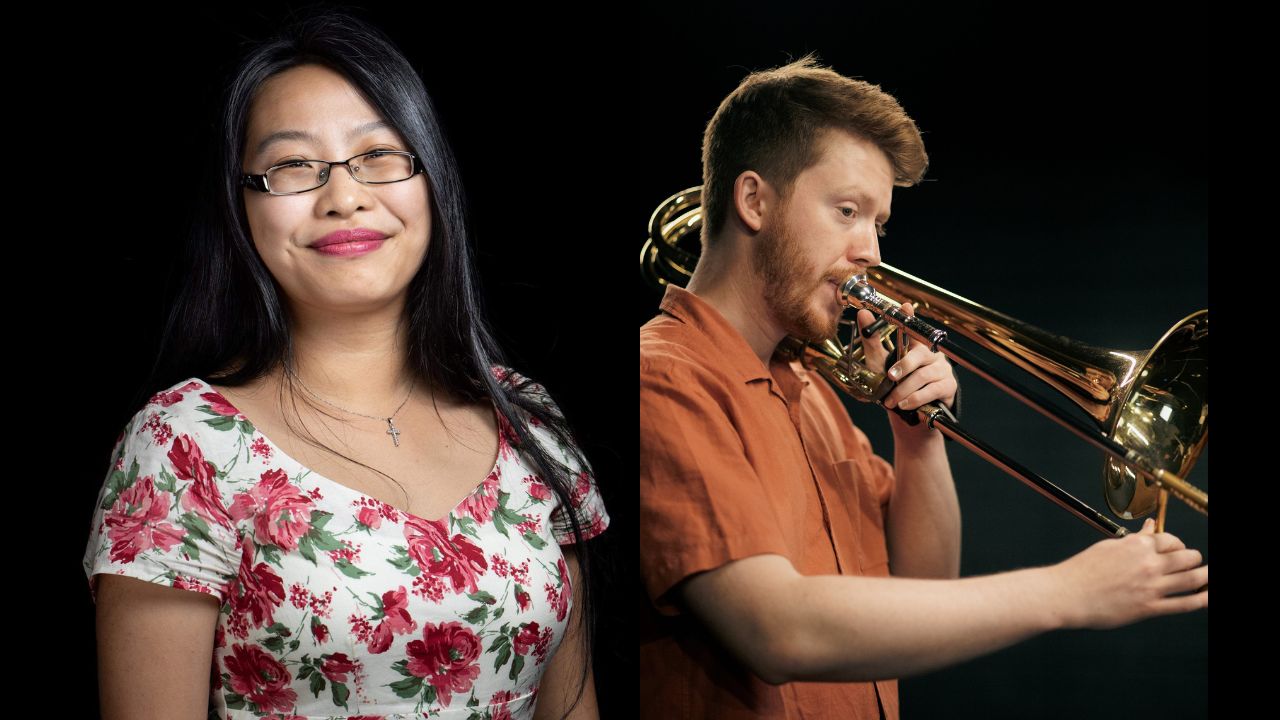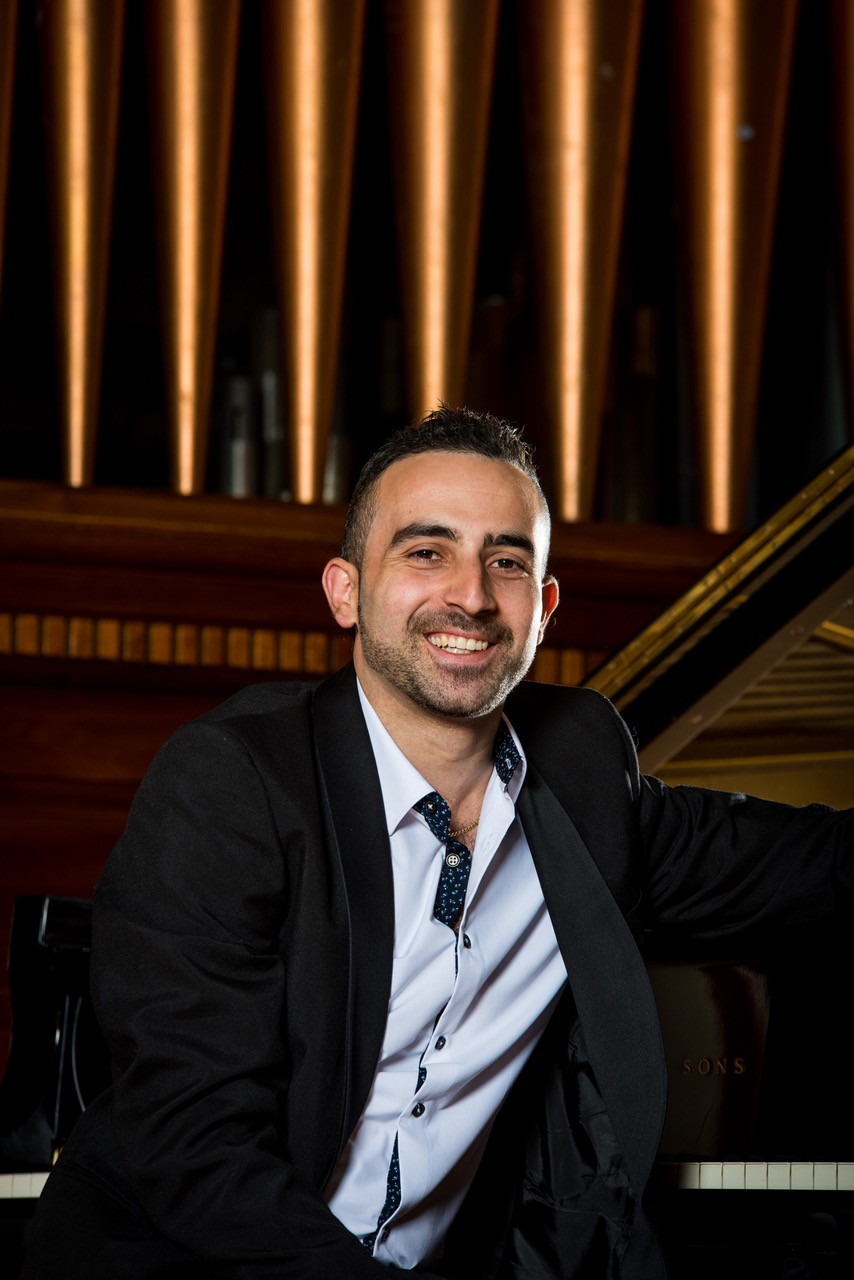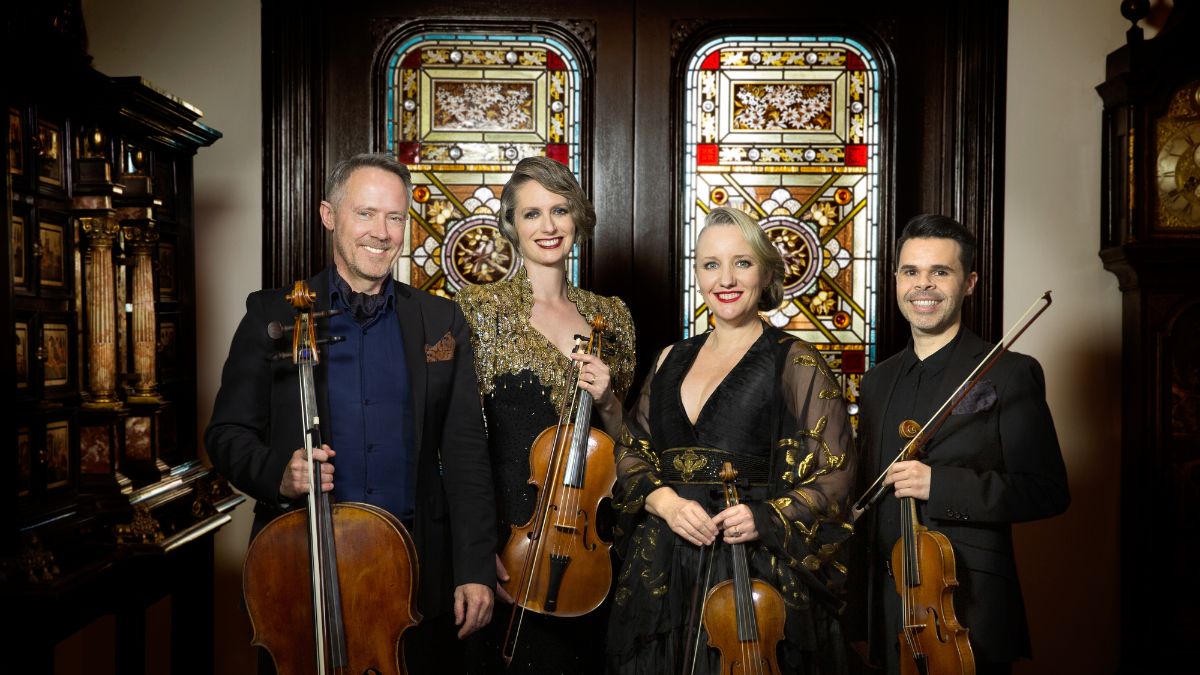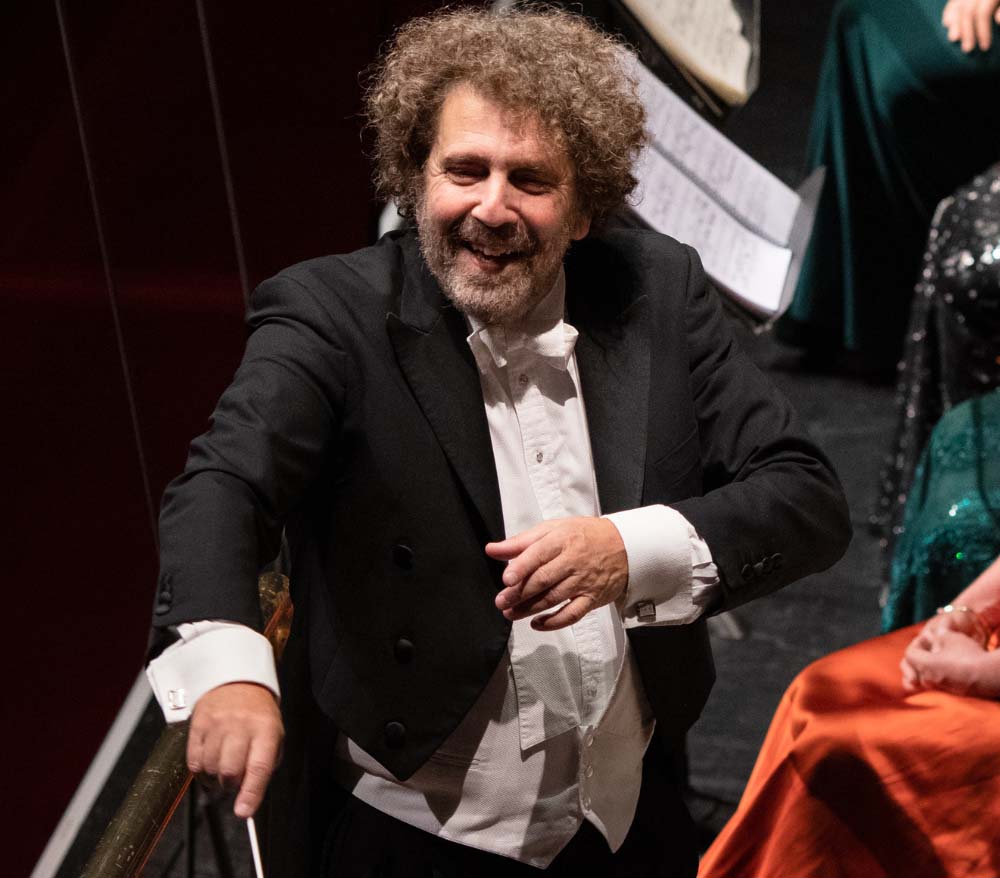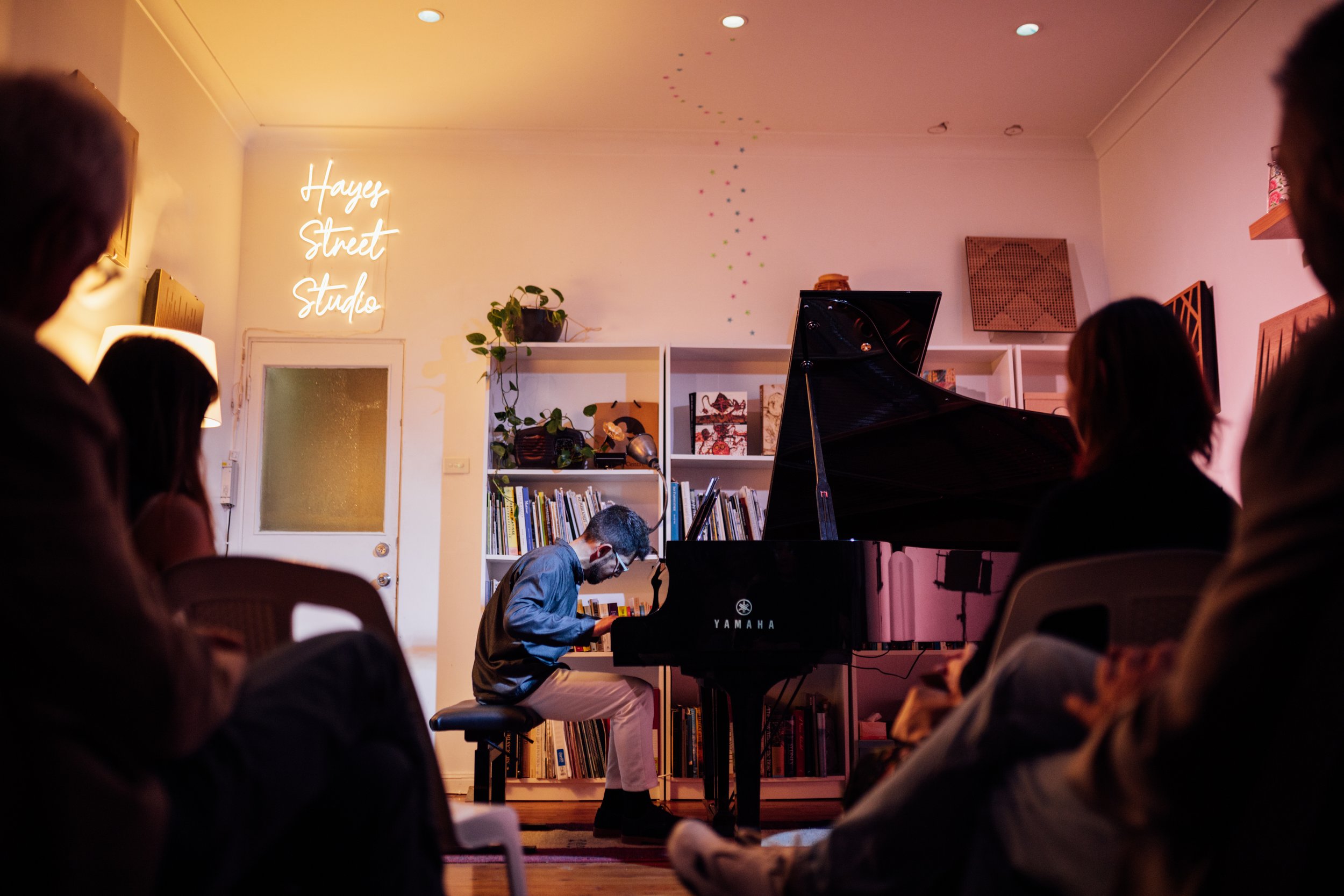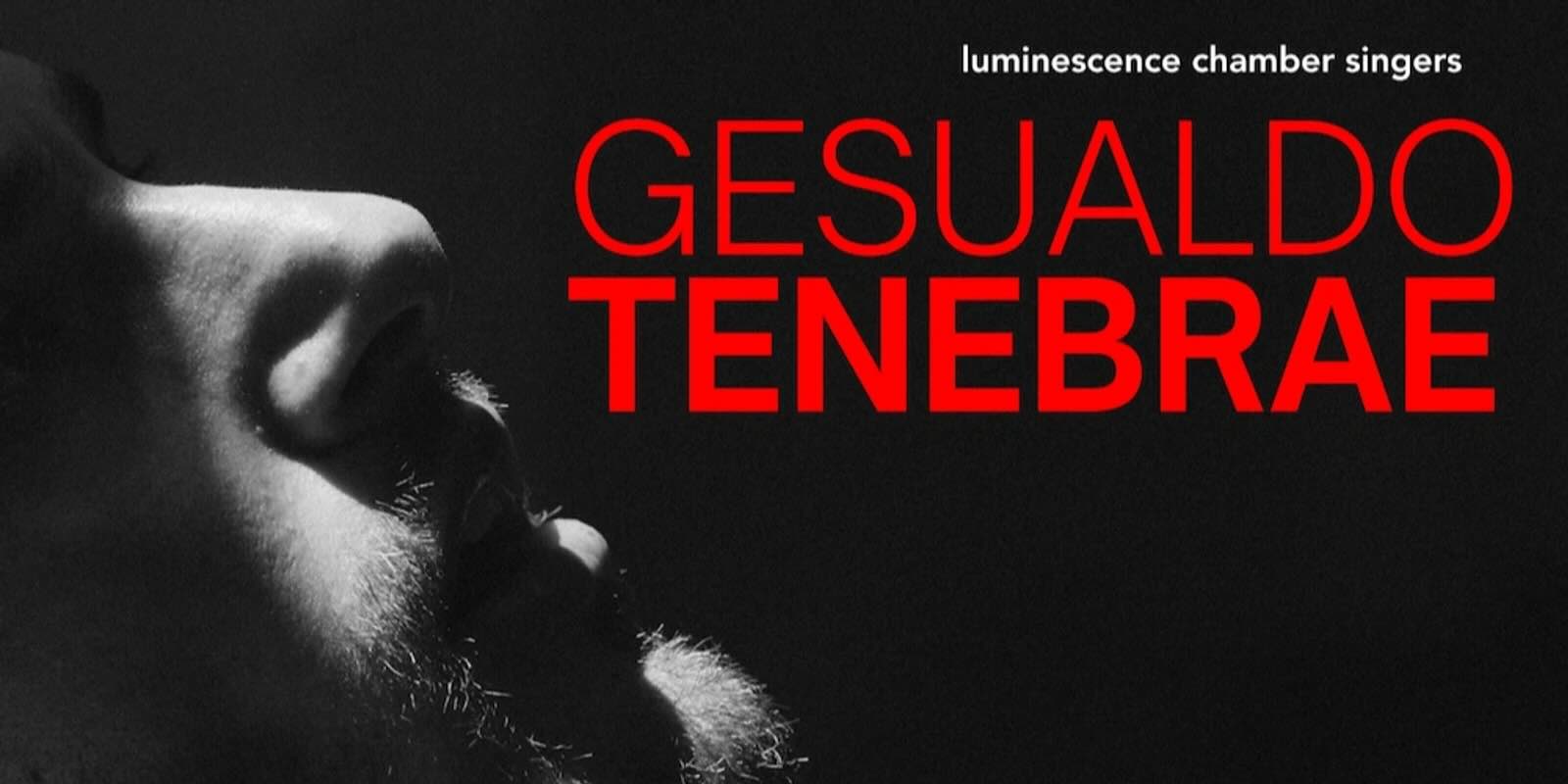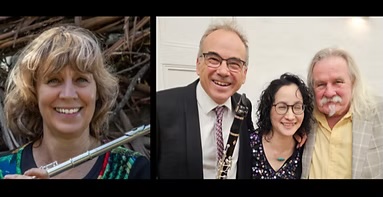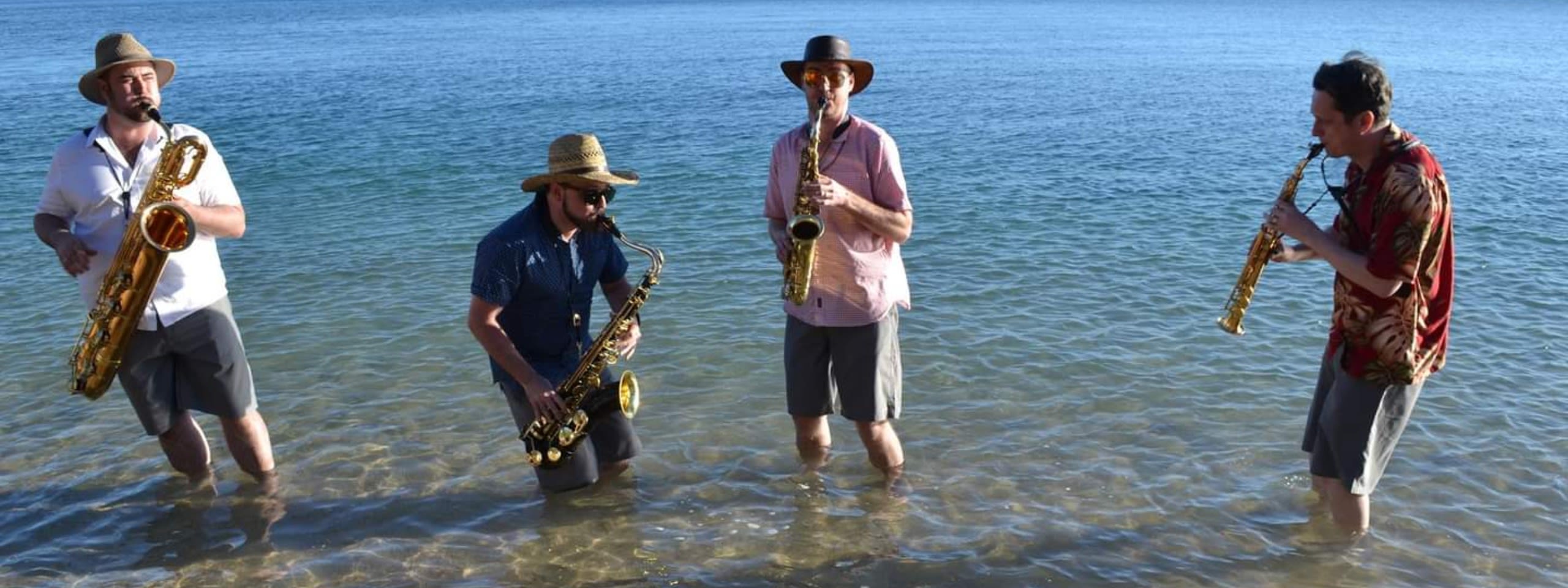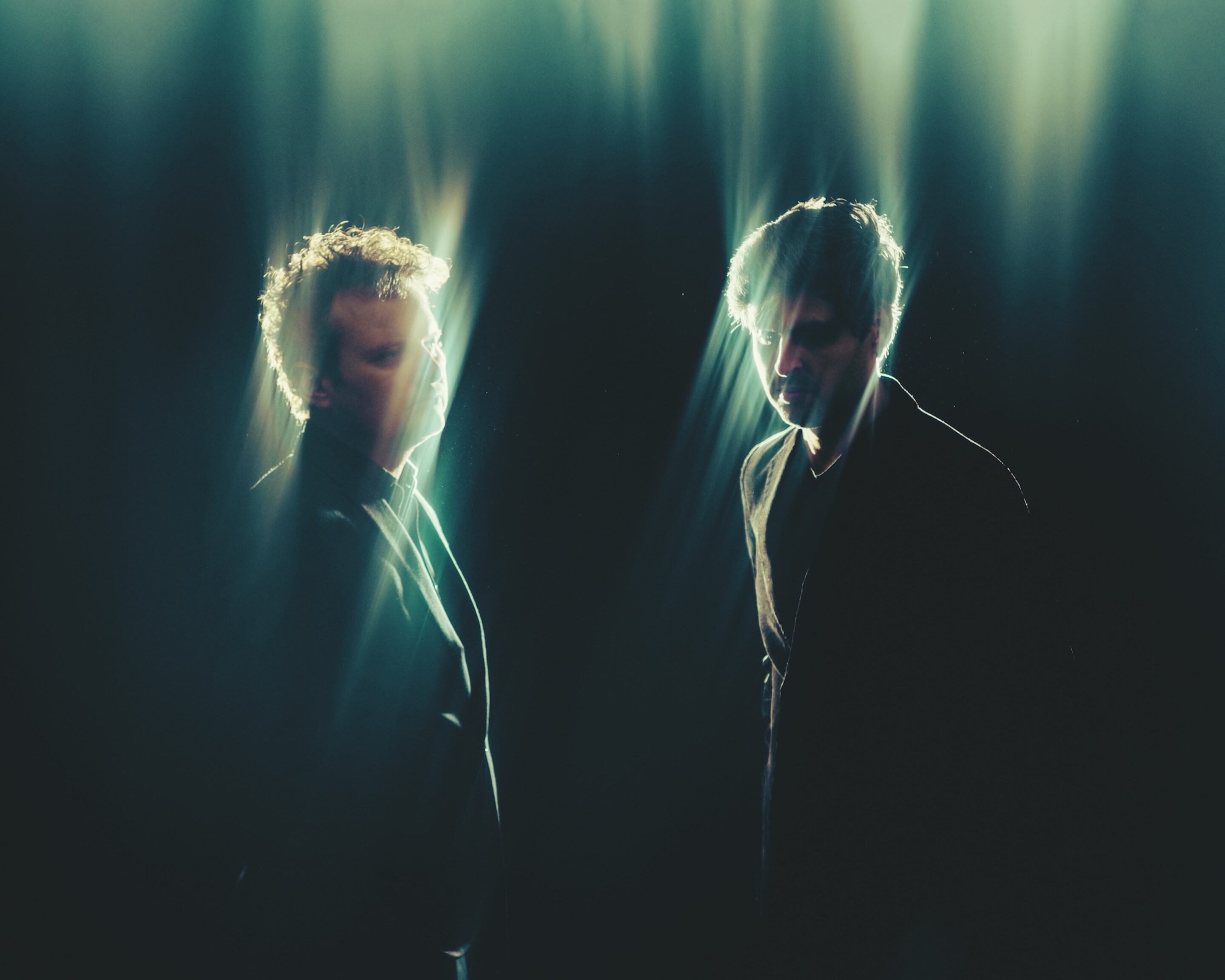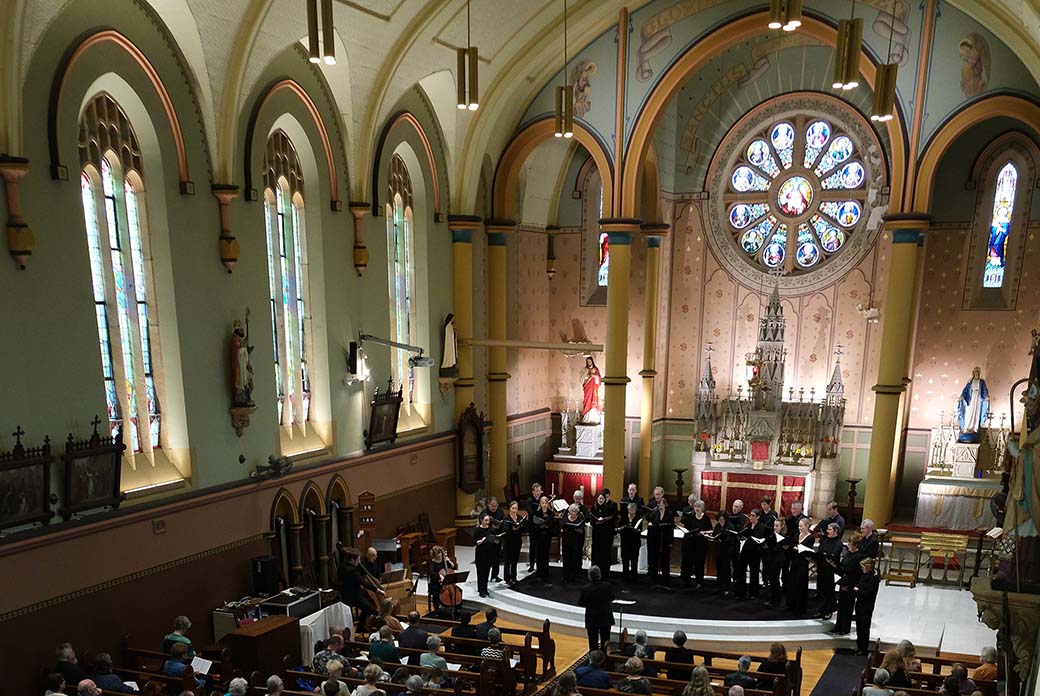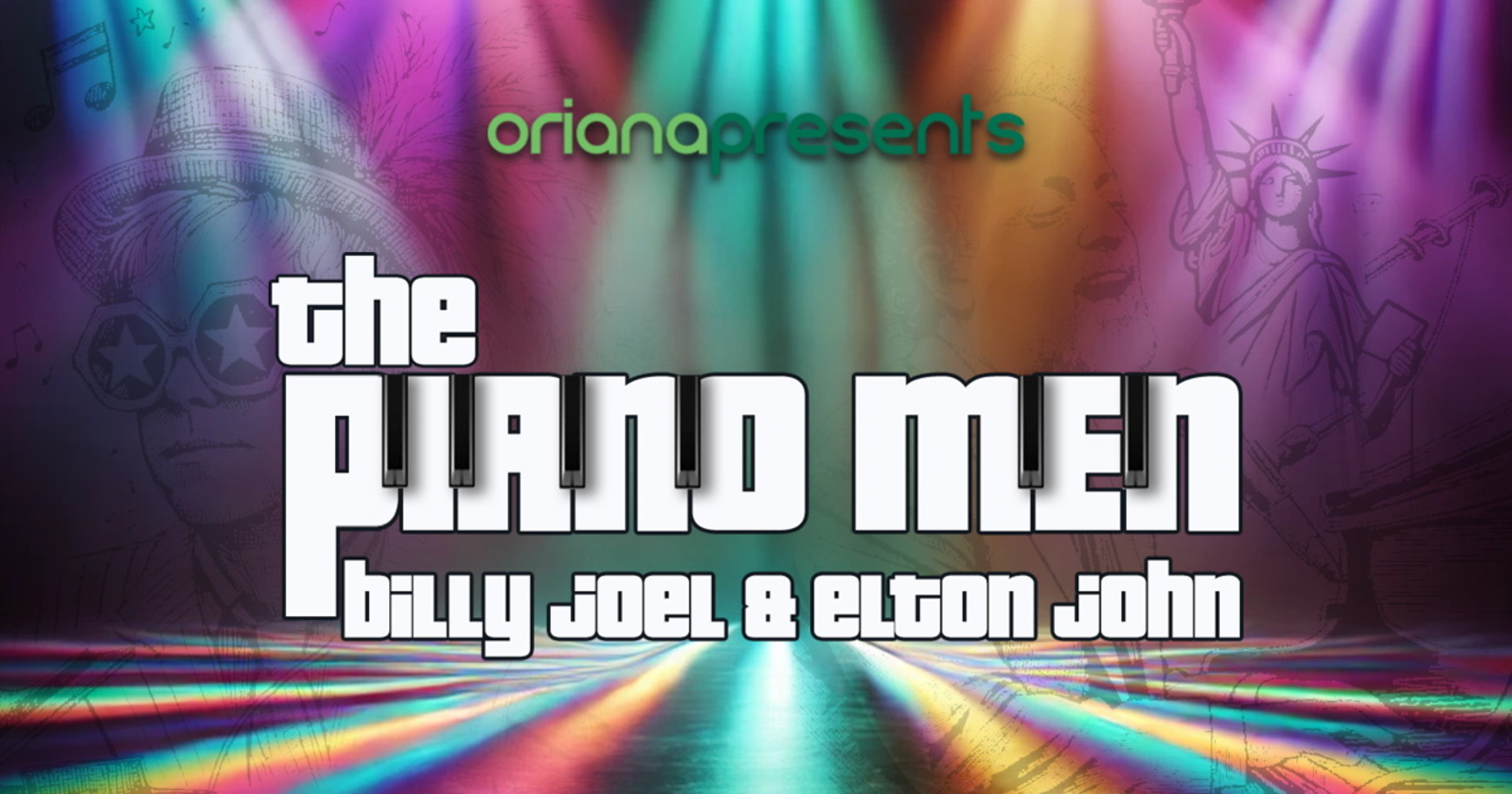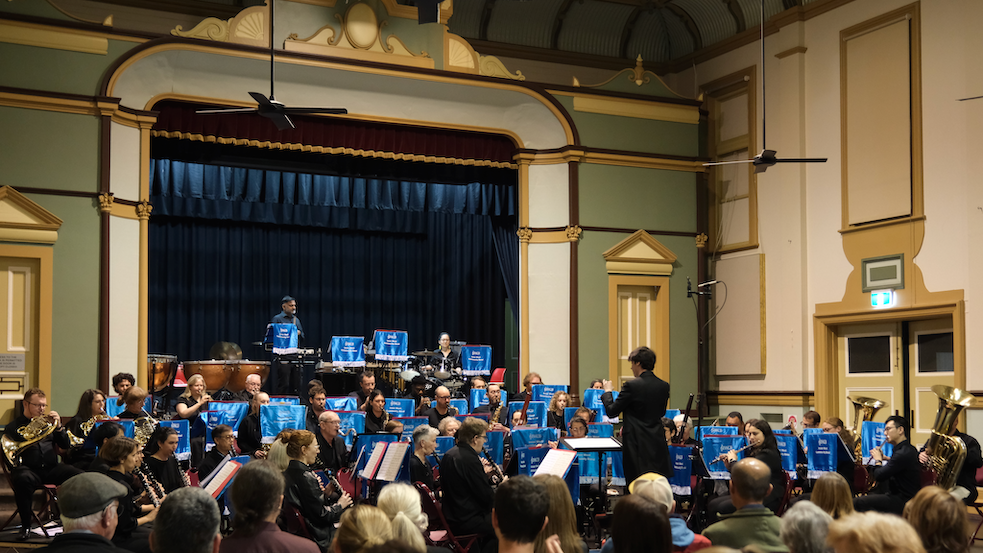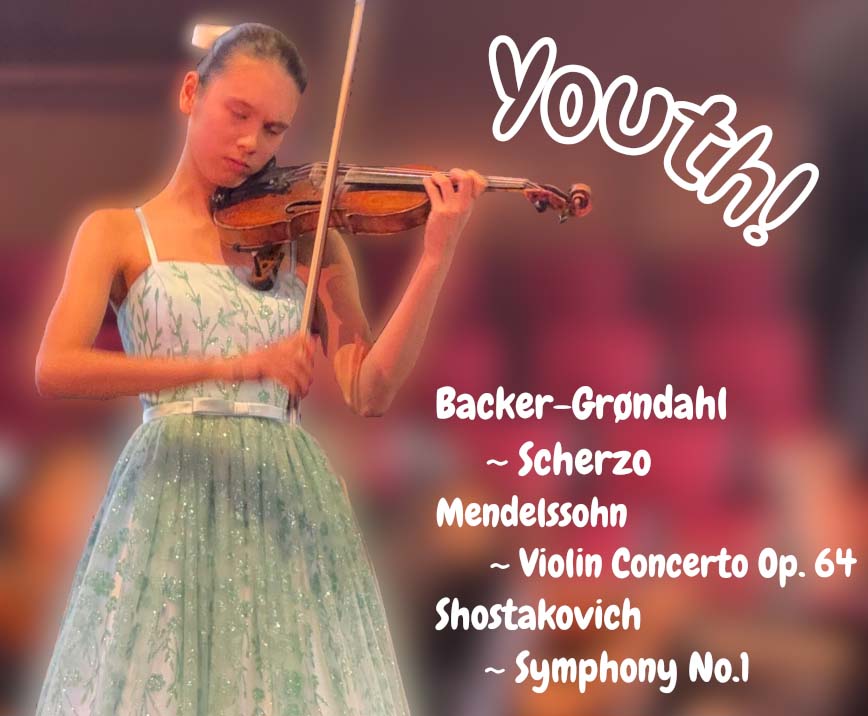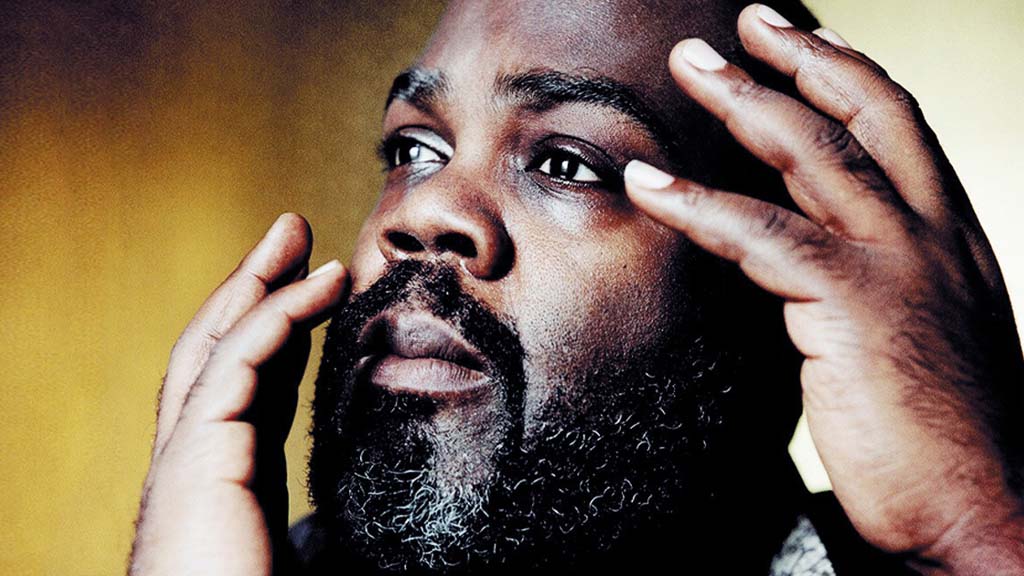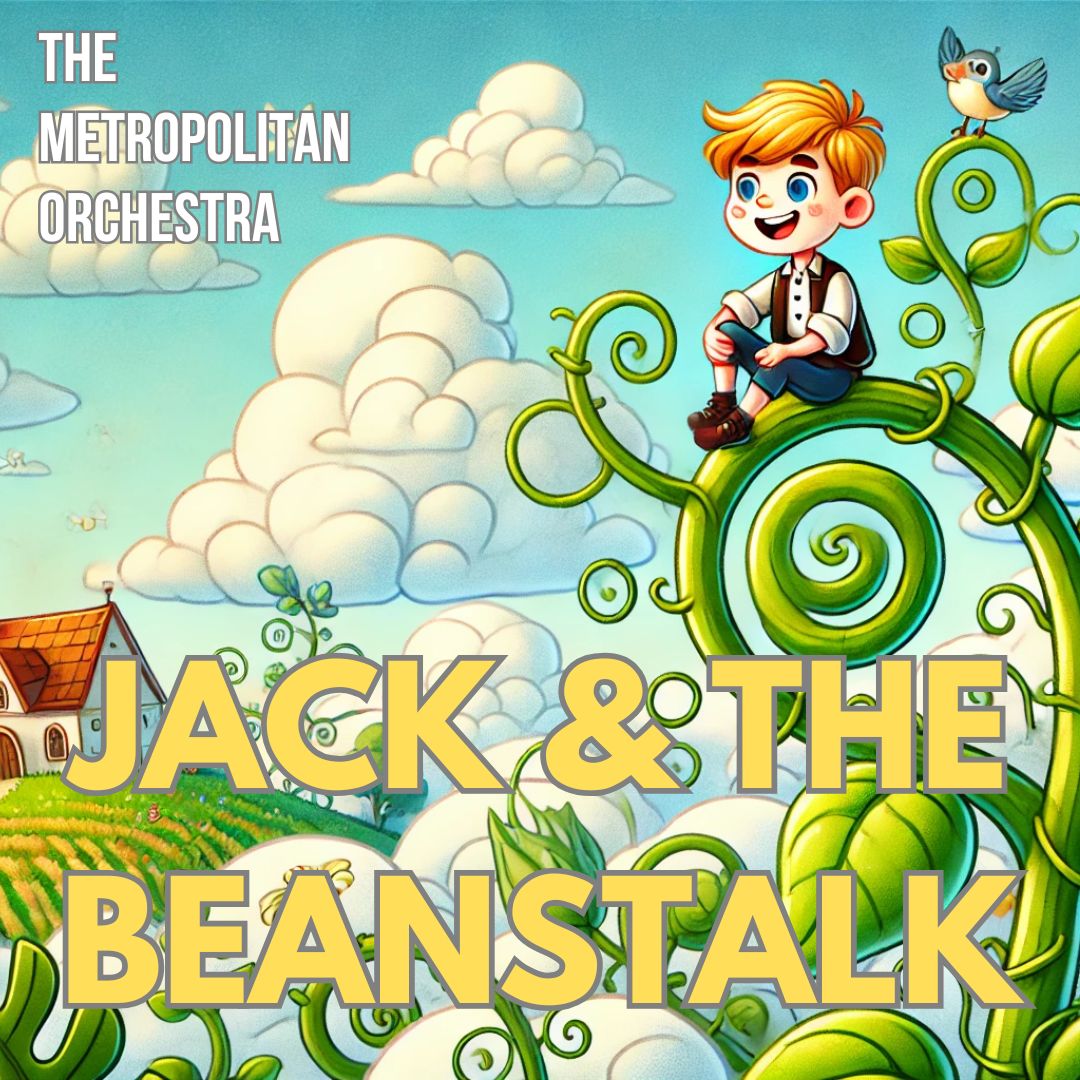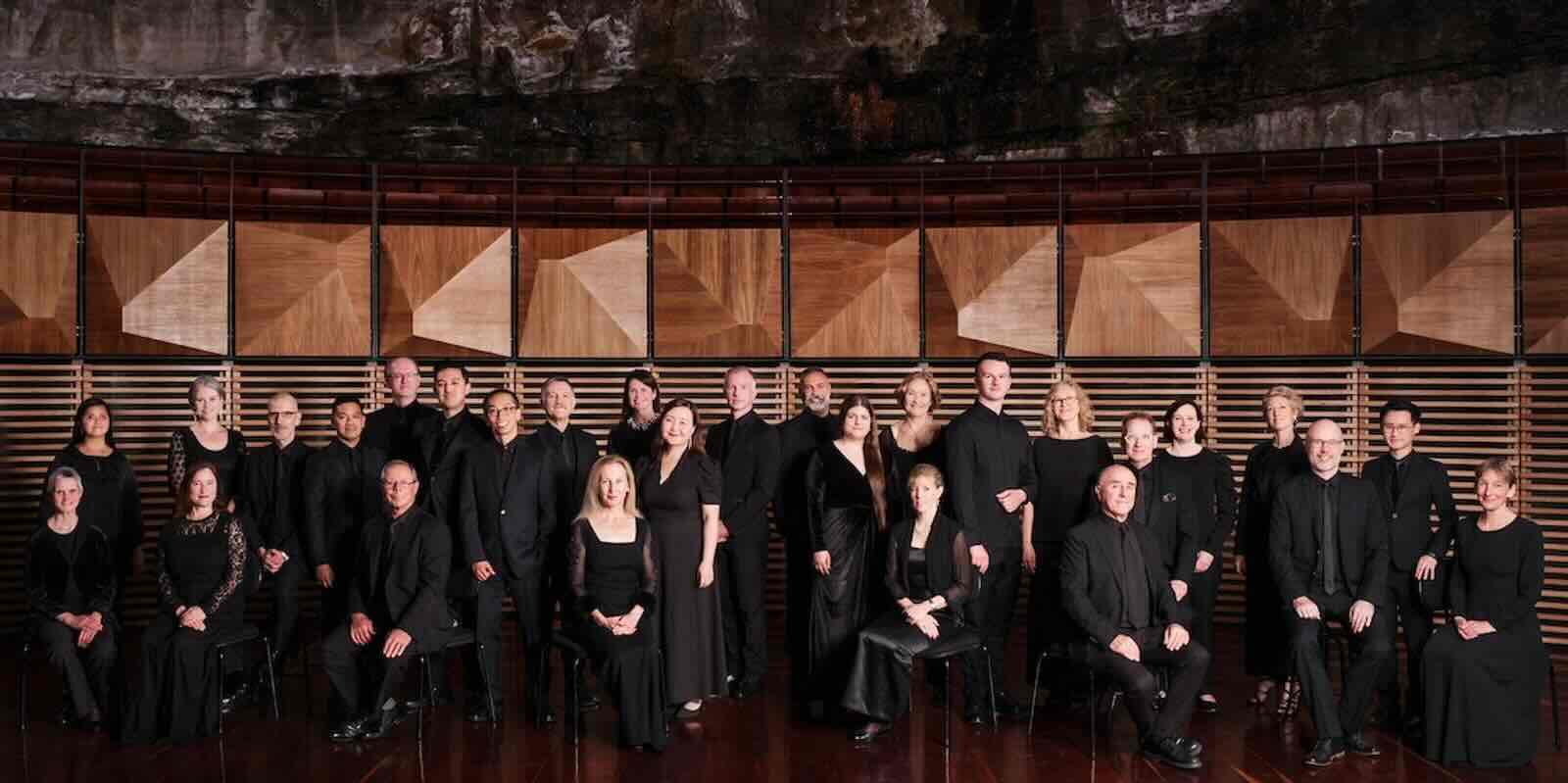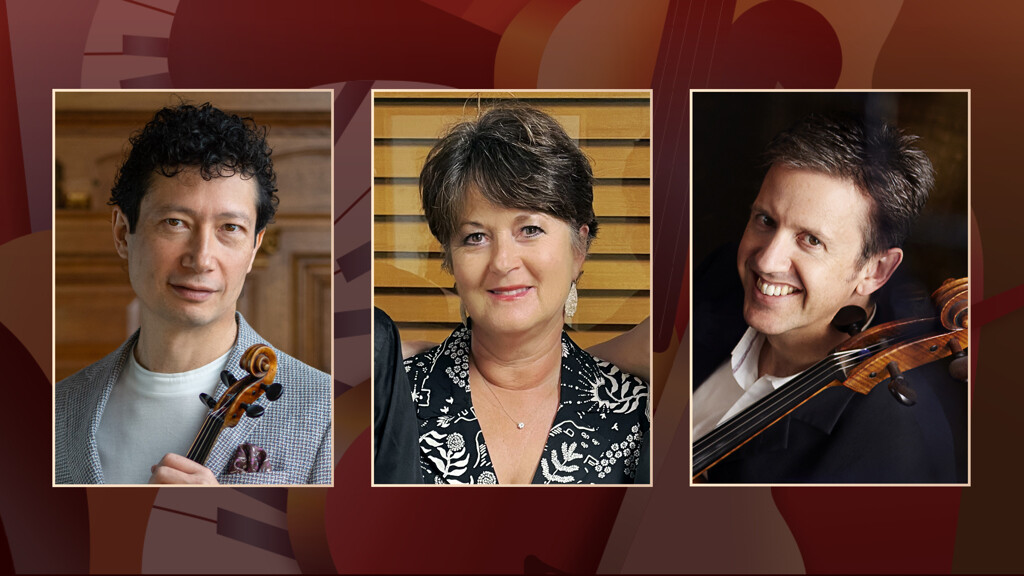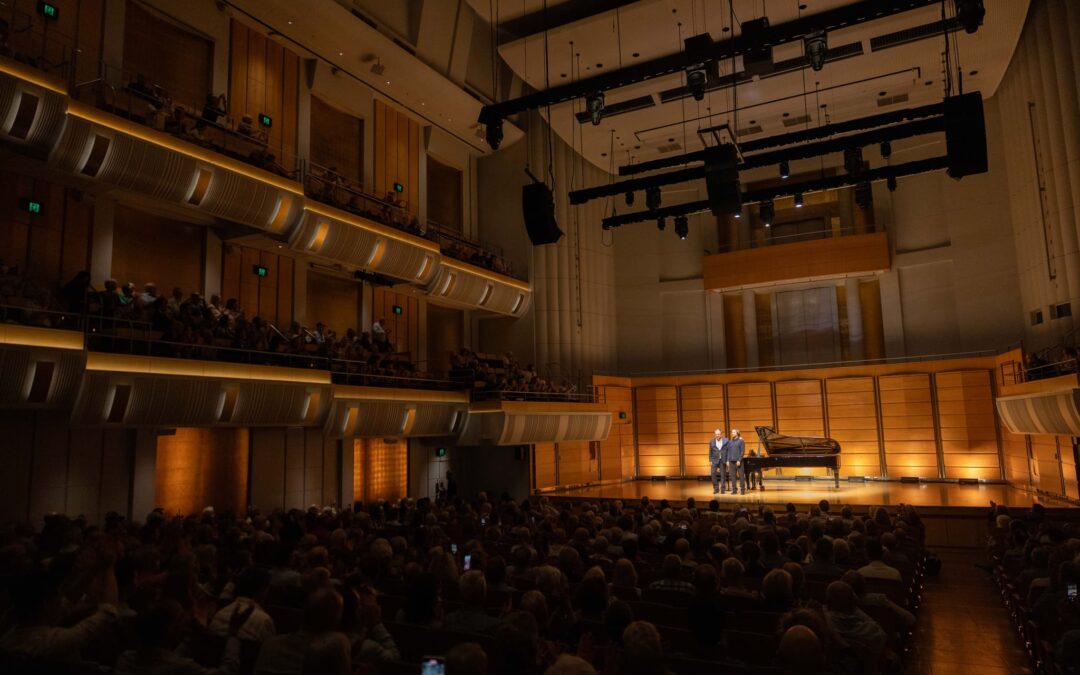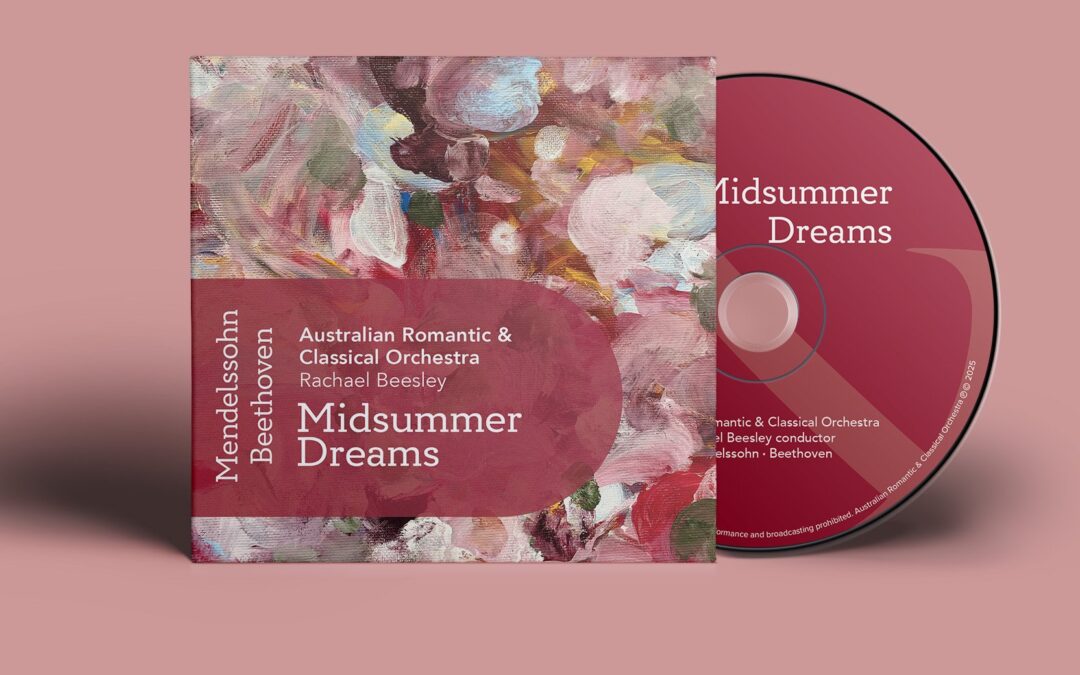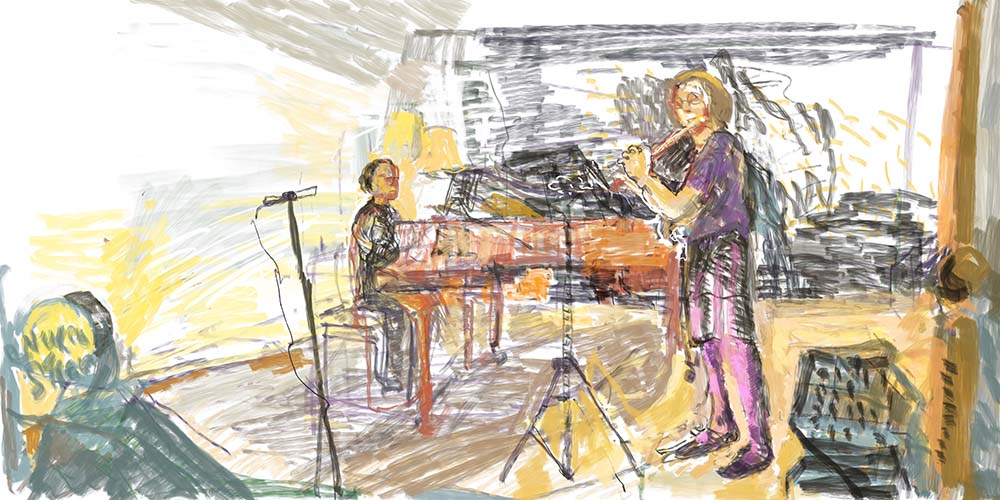Bendigo Chamber Music Festival | Wednesday + Thursday
5th and 6th February, 2025, Bendigo, VIC
Covering the whole festival in some detail, this is a long review broken up over 4 articles. I strongly encourage readers NOT to read this entire review in one go; instead read it day by day with a pause in between or even take one or two concerts at a time. All the reviews are linked below. In attending 4 events per day, I made sure to keep up with promptly writing everything up during the four days to ensure I could delineate properly between each concert’s features. Take your time reading and then make up your mind to come to this festival next year.
I follow the festival’s lead in naming the performers by their first names in the programme of events
Performers in the festival
Natsuko Yoshimoto – violin
Charlotte Saluste-Bridoux – violin
Harry Bennetts – violin
Tobias Breider – viola
Justin Williams – viola
Alexandra Flood – soprano
Louisa Breen – piano
Ignas Macknickas – piano
Daniel de Borah – piano
Donald Nicholson – harpsichord
Chris Howlett – cello
Howard Penny – cello
Alexandra – soprano
Brigid Coleridge – violin
Wednesday 5 February 7.45 pm – Opening Concert
Beethoven – piano quartet in C major WoO 36 no 3
Schubert – Liebesbotschaft
Schumann – Frauenliebe und Leben
– Seit ich ihn gesehen
– Du Ring an Meinem finger
– An meinem Herzen an meiner Brust
Baermann clarinet quintet no 3 in E flat major op 23
This was the opening concert, where we had acknowledgements and a mayoral official opening. The concert programme introduced us to most of the performers of the festival being rather a harbinger of delights to come. It was a delight to hear the contrasting styles of pieces and indeed performers. The impressive Shigaru concert grand was used for the first three items courtesy of Kawai pianos.
Excellent balance was achieved in the Beethoven quartet allowing the main piano part to shine. Despite the powerful concert grand, the piano never dominated but sparkled through the perfectly balanced supporting role of the strings. That being said, the violin solos in the sublimely played adagio were notable for their flexibility in phrasing and their haunting beauty. The whole concert would have been worth it for this movement!
The opening allegro was full of sparkle with the piano emerging delicately through the string accompaniment as was the final rondo allegro which ended in a rousing flourish of unified energy.
Following was the Schubert Liebesbotschaft and Schumann Frauenliebe und Leben with very delicate playing and refined textures from Louisa (piano) and excellent delivery from Alexandra (soprano). Louisa’s playing felt as if she had considered every note, it’s purpose in the harmony as well as its rhythmic effect and of course the melodic development such as it is in these wonderful accompaniments by composers who knew how to make a piano accompaniment so much a part of the total musical effect. This was a collaboration between two artists that worked extremely well. Alexandra showed she is just as comfortable with the world of lieder as she is with her operatic career.
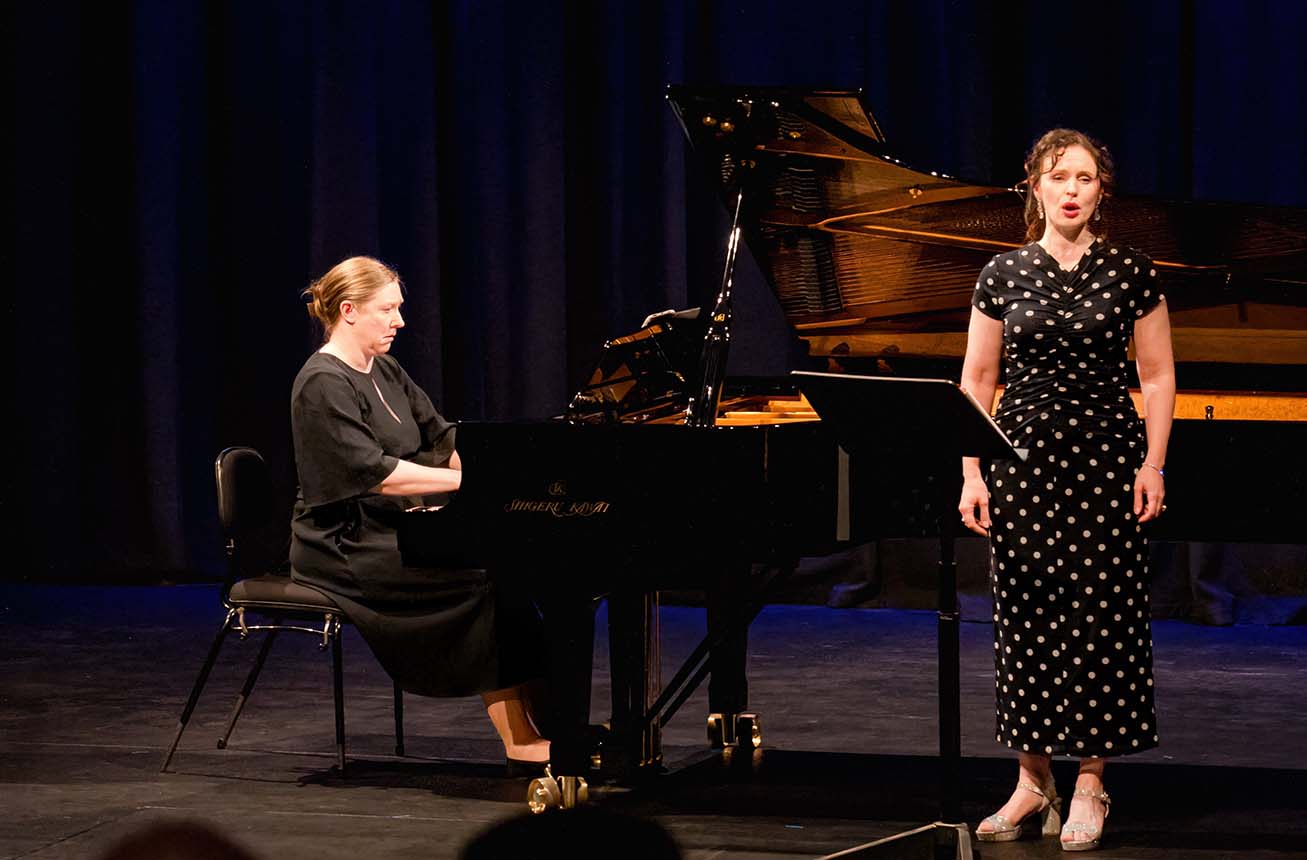
The Schubert Rondo Brilliant in B minor is a showy piece for the artists with big piano chords and much violin passage work and gesture and as such was ably performed by Charlotte and Ignas.
Finally, the quintet was played with three to a part with all the string players performing with the clarinettist. Despite not being a one to a part string quartet this came over very well with excellent balance between strings and clarinet. Notable here was the control in the extremely soft adagio passages both in the strings and the clarinet.
All in all, this was a fine start to the festival with happy faces at the end of the concert.
Thursday 11.00am, Forest St Uniting Church
Tarilindy Quartet
This young quartet have a great future ahead of them playing with a maturity beyond their years. Afterwards they said that they were excited and gratified and privileged to be working with such wonderful professional tutors at this festival. I did have to mention at that juncture that they were already professional themselves. Performing an Australian work by Paul Stanhope set to portray the Kimberley region and combined with the intense Mendelssohn F minor quartet making an excellent and curiously balanced programme.
“From the Kimberley” has three movements, Tracks and Traces, Dirarri Lament and River Run. The first movement was energetic and used extended techniques such as sliding quickly between harmonics and skimming bows across strings lightly combined with sul ponticello techniques and aggressive pizzicato. In fact, the first movement ended this way with a loud and abrupt pizzicato chord.
The Dirarri lament began ethereally with light skimming bowing creating very quiet wispy sounds. The textures here were handled with seeming ease and the different instruments connected seamlessly. The final movement was energetic again with harmonics and ever-changing textures again excellently handled and dovetailing neatly into the movement’s sections. This was a mature performance of a lesser known and difficult work and made attainable and moving for the audience.
“mature and dedicated musicians”
The Mendehlsohn F Minor Quartet is an intense work and especially in the adagio which was performed particularly beautifully as it captured the movement’s atmospheric and evocative nature being almost timeless in aspect and subtle in its expressiveness.
The last movement’s energy really let loose in the final accelerating tempo and was particularly exciting displaying excellent ensemble in this fast and furious ending.
Again, I say these are mature and dedicated musicians. Their faultless intonation and ensemble showed that they must rehearse together often and intensely.
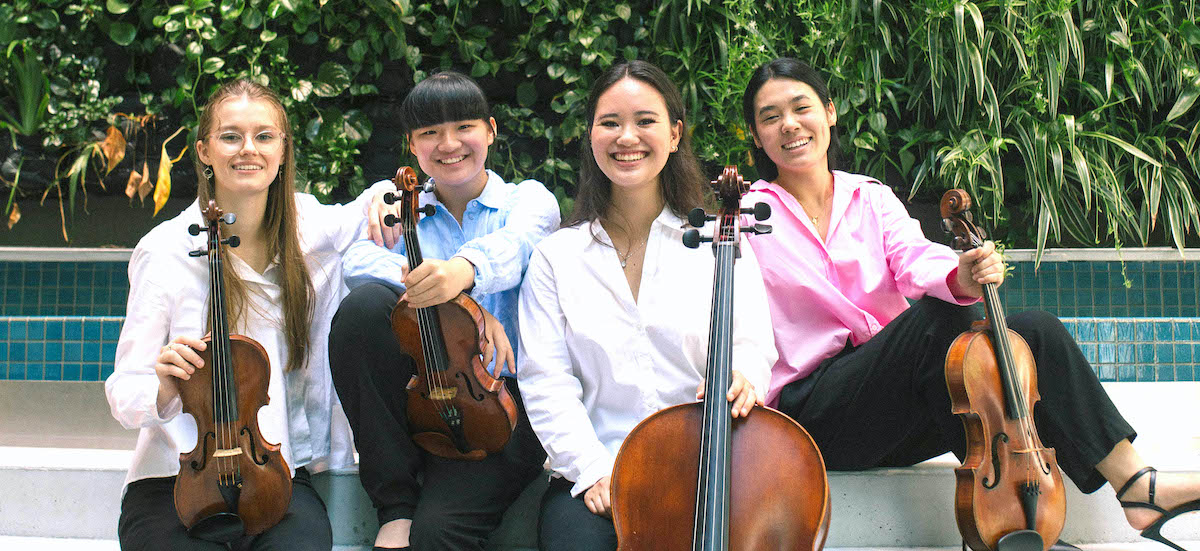
Thursday 2.00pm Howard Penny explains Schubert’s E flat Trio “The ultimate “Piano Trio
This was a fascinating insight to Schubert’s late trio full of pathos, emotion, energy and bitter-sweetness. Howard Penny with assistance from his colleagues playing with him performed snippets of the movements explaining the themes and motifs, how they related to each other and developed into other manifestations.
Without performing the whole work, we were given an overview of the piece’s inner workings. I was left feeling “I can’t wait to hear this divine work this evening”.
Thursday 5.00pm – Ulumbarra Theatre
Haydn – Piano Trio no 28 in E major Hob.XV:28 (Ignas, Brigid, Chris)
Britten – Lachrymae op 48 Reflections on a song of John Dowland (Justin, Louisa)
Schubert – Nacht und Träume (Alexandra, Louisa)
R Strauss
– Die Nacht
– Ständchen
“stunned at Louisa’s quiet total control”
There was no shortage of confusion about where to go for the dusk concerts (read full Australian 5.00pm sun at 36 degrees with 4 hours of daylight yet to go). This could have been displayed better in the programme although I and other people worked it out eventually especially after an announcement by Chris at the 11.00am concert. As a Gold pass holder, I next went to the Ulumbarra Theatre where we heard Haydn, Britten Strauss and Schubert. On Friday I would hear the dusk programme in the Beehive building. Platinum pass holders did this in reverse!
The Haydn Piano Trio is very piano dominant although the pianist played delicately with an ear for the style of the music. The piano was a small Kawai lacking in bass quality although with the refined playing this rarely impinged. The violin part often comes to the fore though and this was superbly played by Brigid who had a long-standing desire to play this trio – one of her favourites. It is happy and humorous as well as being full of spiky angular gestures redolent of the CPE Bach era. A dramatic presentation without being out of place for this sort of music. I noted that Brigid has a really good sense of the role she plays as earlier playing second fiddle contrasted to this concert where she took the solo violin part on with energy and passion.
We were treated again to the refined accompaniment of Louisa working with Alexandra who I even more think, now make a really good team. I am stunned at Louisa’s quiet playing with total control that creates enveloping textures to support the soloist. The singing again was superb with Alexandra presenting the pieces and letting us know that Ständchen is a piece she has developed a relationship with for 20 years. This certainly showed with her dramatic gestures and facial expressions which were in keeping with the texts of the songs as well as providing musical gesture in the sound.
Thursday 7.45 pm Capital Theatre
Schubert
– Overture in B minor, D 8, Largo, Allegro (Natsuko, Brigid, Justin, Chris, Tobi)
– Shepherd on the Rock (Alexandra, Lloyd, Louisa)
– Piano Trio in E flat Major (Daniel, Harry, Howard)
This programme culminated in the monumental E flat Trio and so the first two pieces were somewhat overshadowed by this. Therefore, it was good to have these first. The five musicians (four listed on the programme) played the overture with precision and energy leaving one wondering why this fabulous piece is not performed more often. Followed by the Shepherd on the Rock. This was possibly the best live version I have heard of the Shepherd. The opening clarinet phrase came from nowhere, subtly drifting in to the piano texture and then seemed to have this incredibly long phrase where I thought “when is he going to breathe?”! This was refined clarinet playing throughout coupled with the first class singing by soprano Alexandra. It was notable that both clarinet and soprano did not “hit” the leap to the high notes in the main theme as I have heard done so often, but “touched” them with elegance and ease. This elegance and ease, was a hallmark of their whole performance.
Whilst difficult to describe the excellent performance in detail of the Schubert Piano Trio it is easy to say that this is one of the pinnacles of piano trio repertoire. This was certainly made to be true under this trio’s hands. Whilst some intonation was not always true there was a very pleasing unanimity in the style and means of tackling this piece giving this performance great personality. Some ornaments in the slow movement were before the beat but this was justified in the talk at 2.00pm by Howard describing the Swedish song that the theme is based upon. The main takeaway is that the understanding of all the themes and motifs in this work were given aspect and gesture to keep the dramatic unfolding of the musical story going.
____________________________________
Read the other reviews of this festival:
____________________________________

